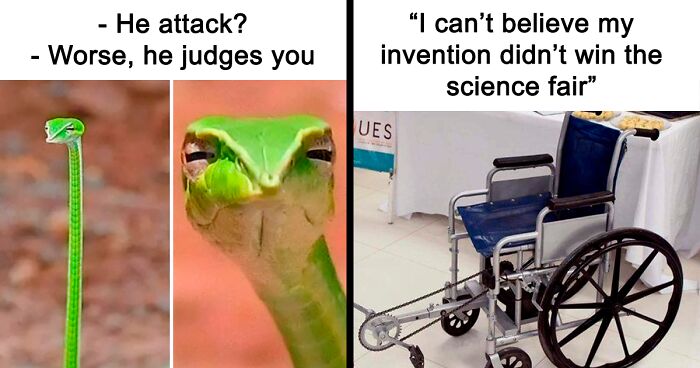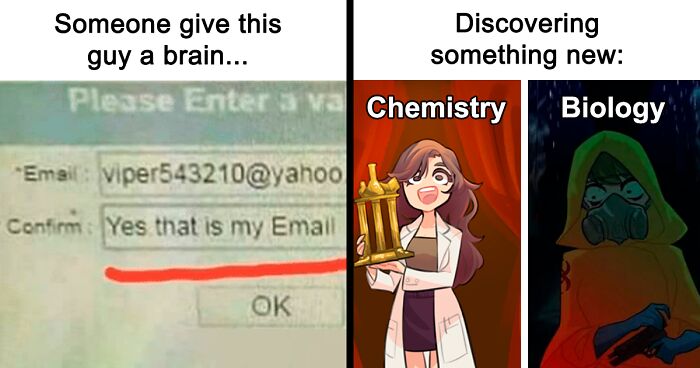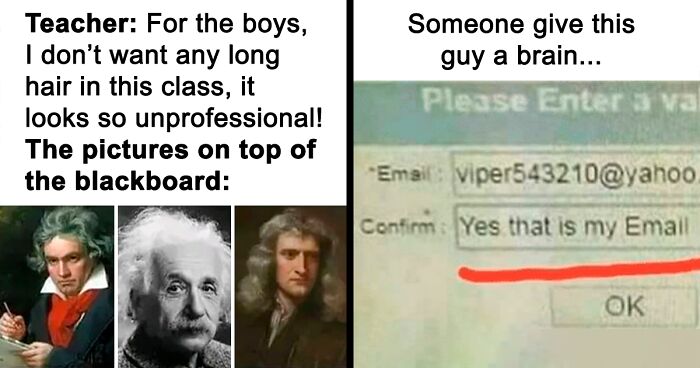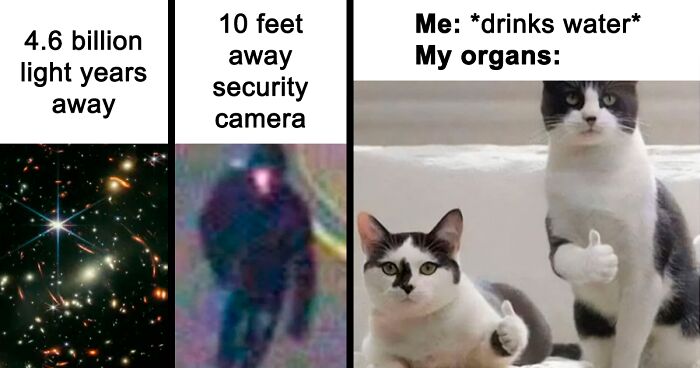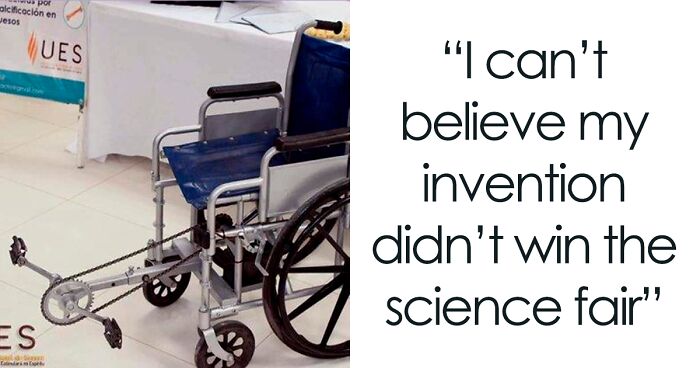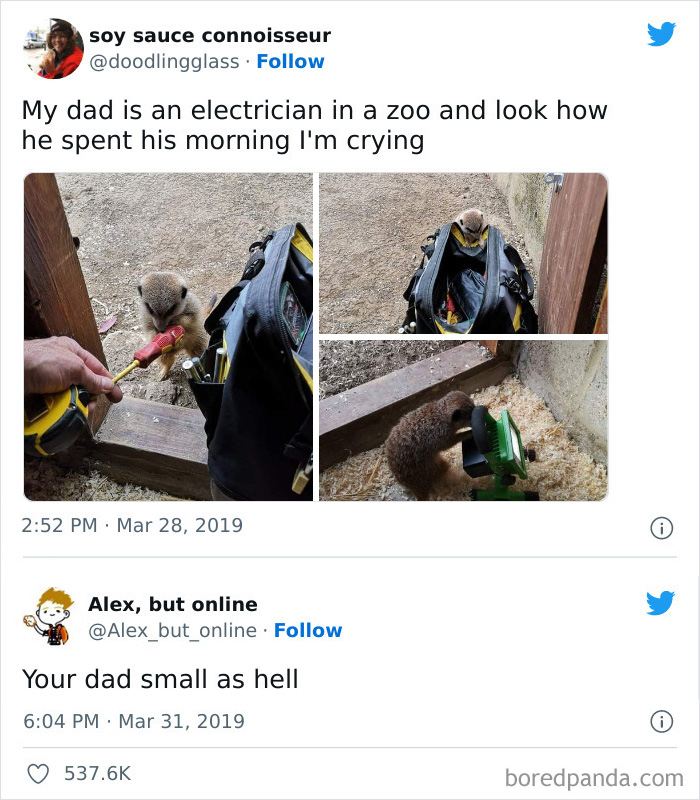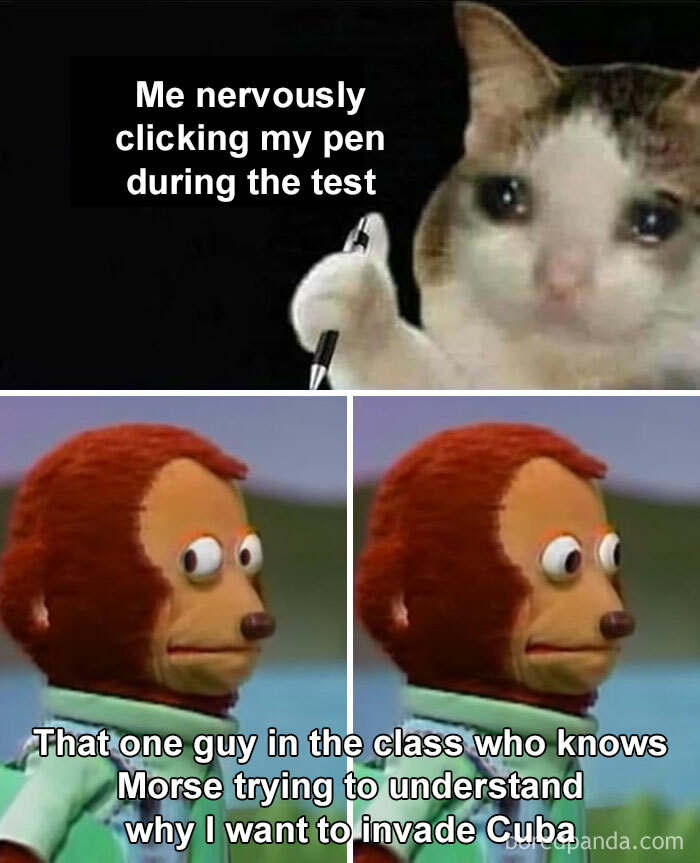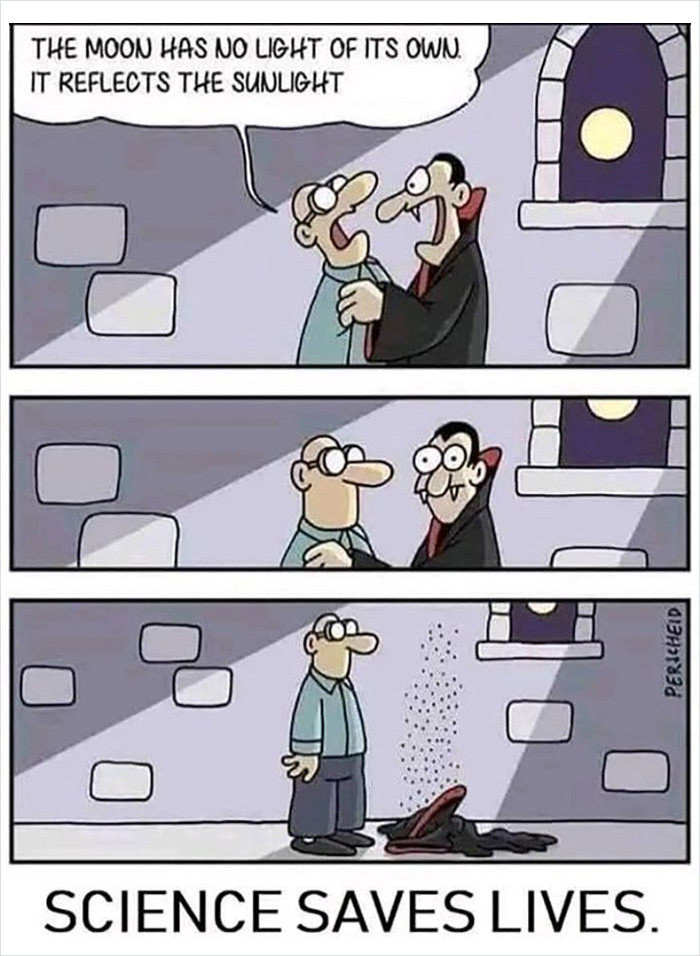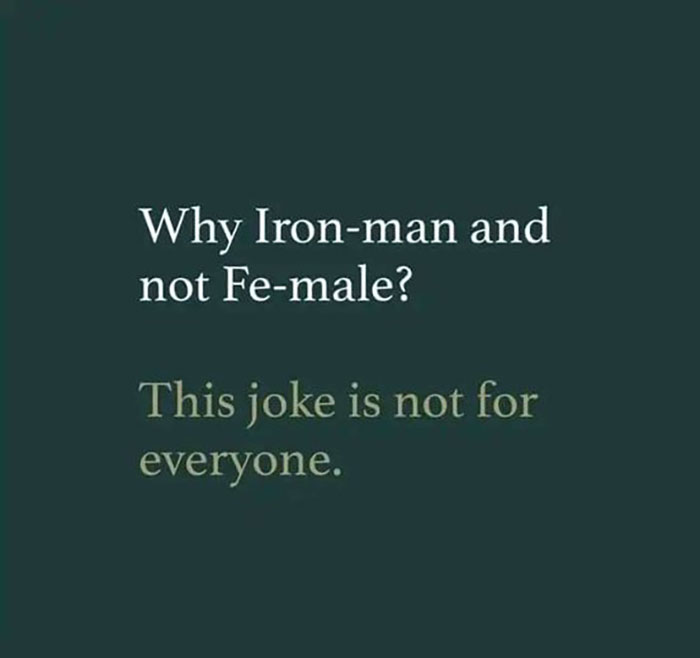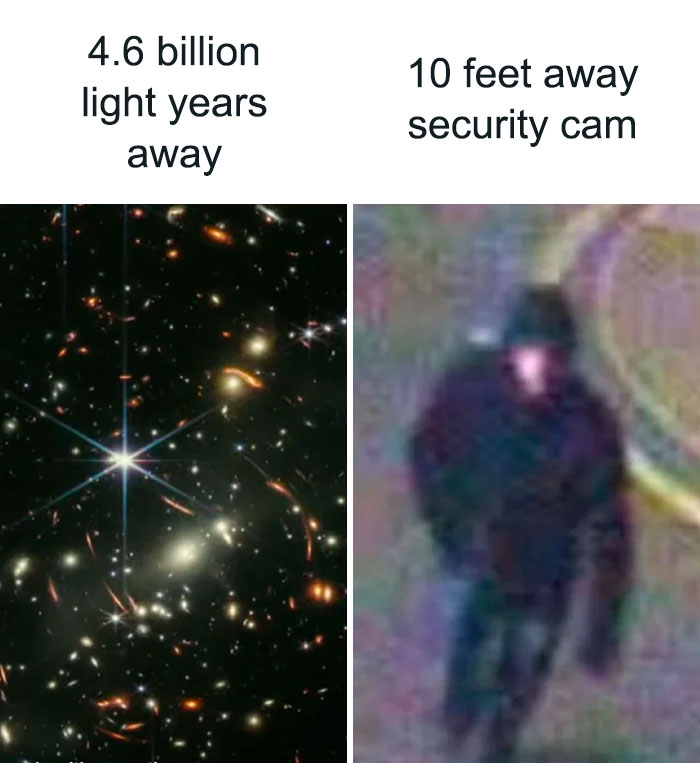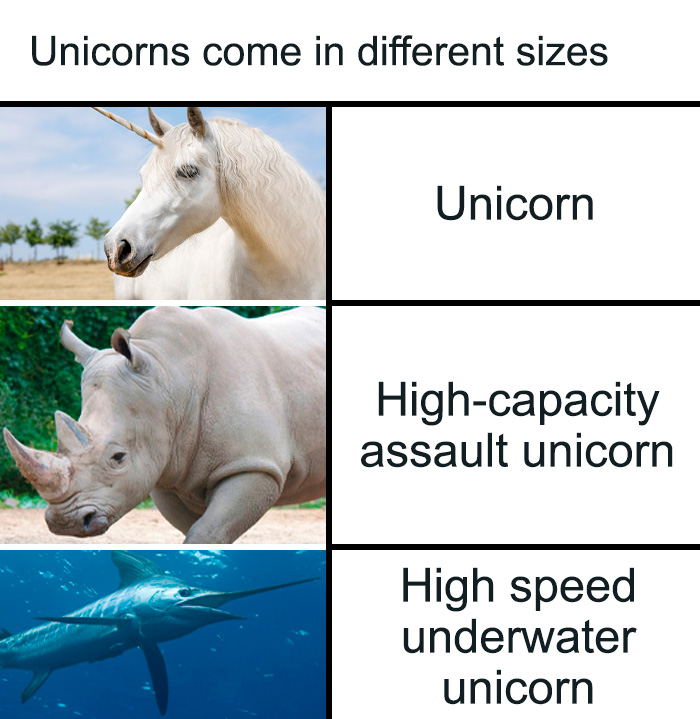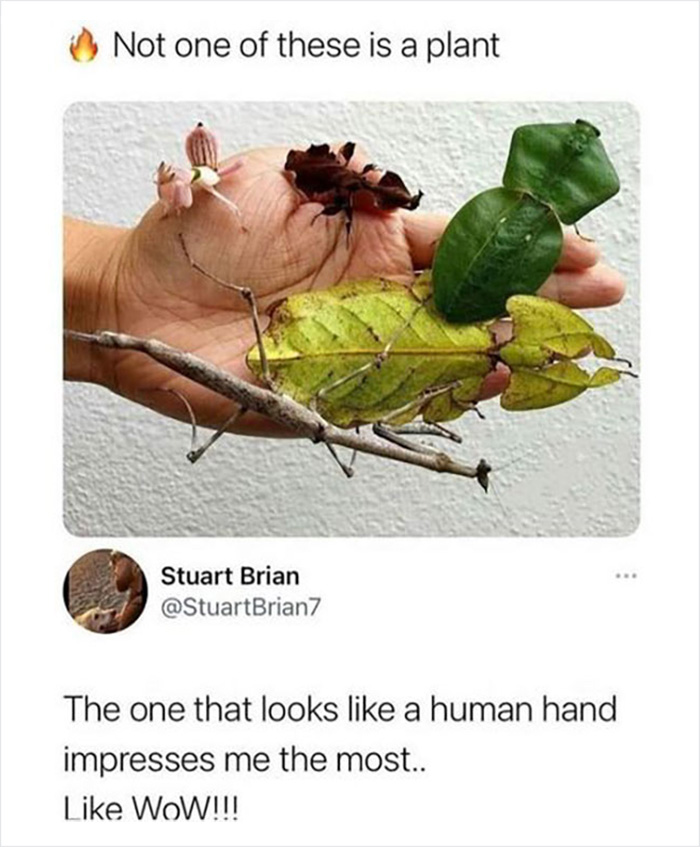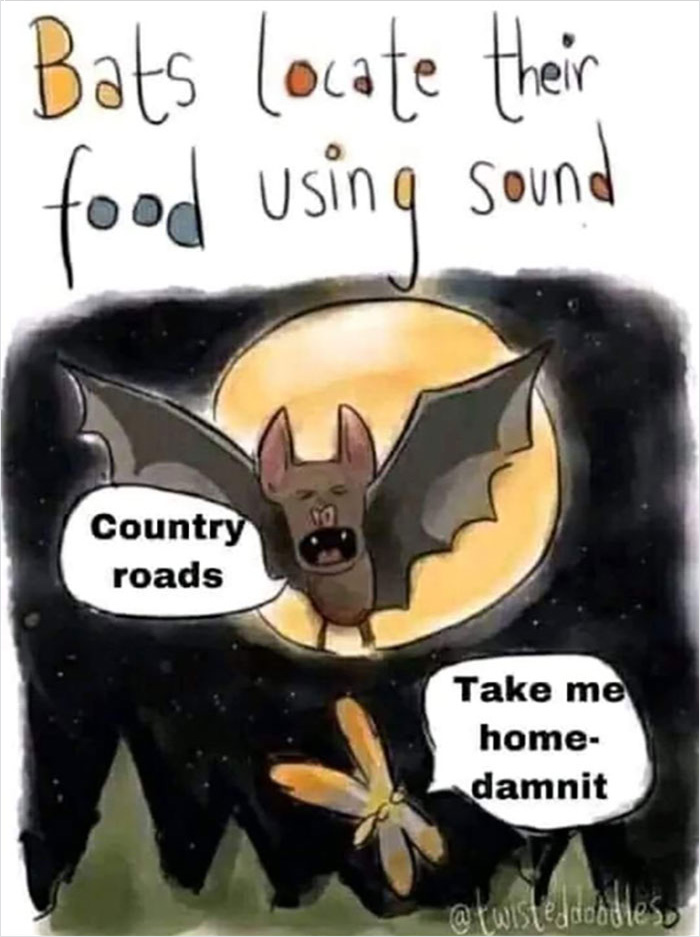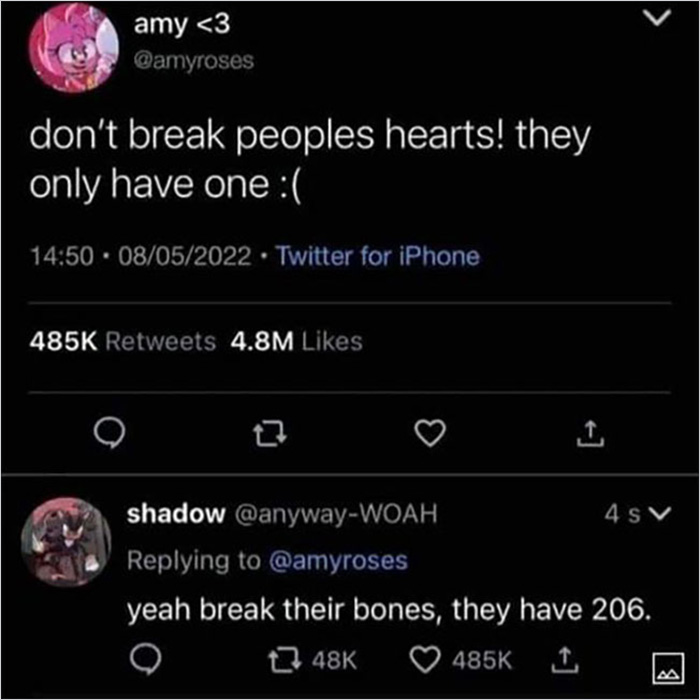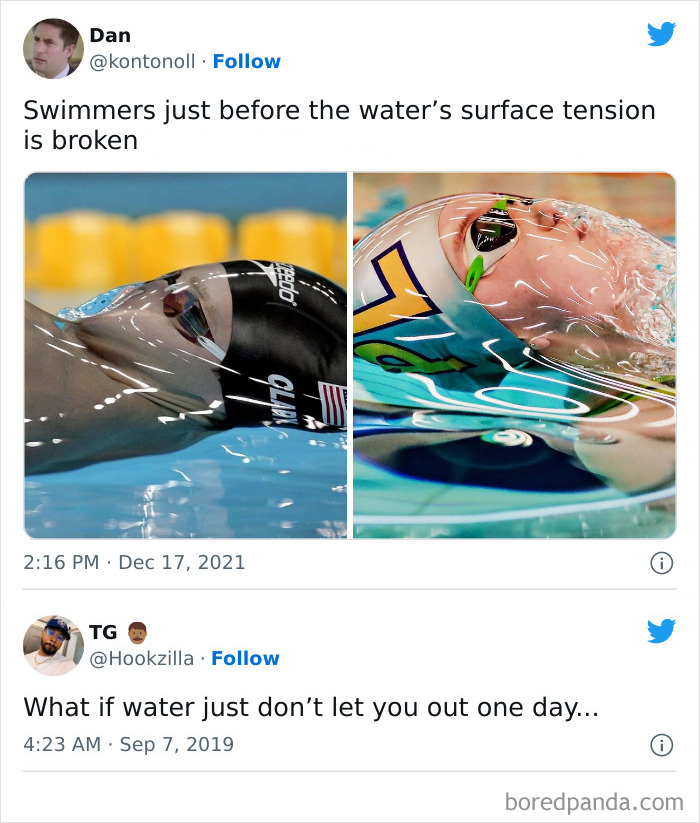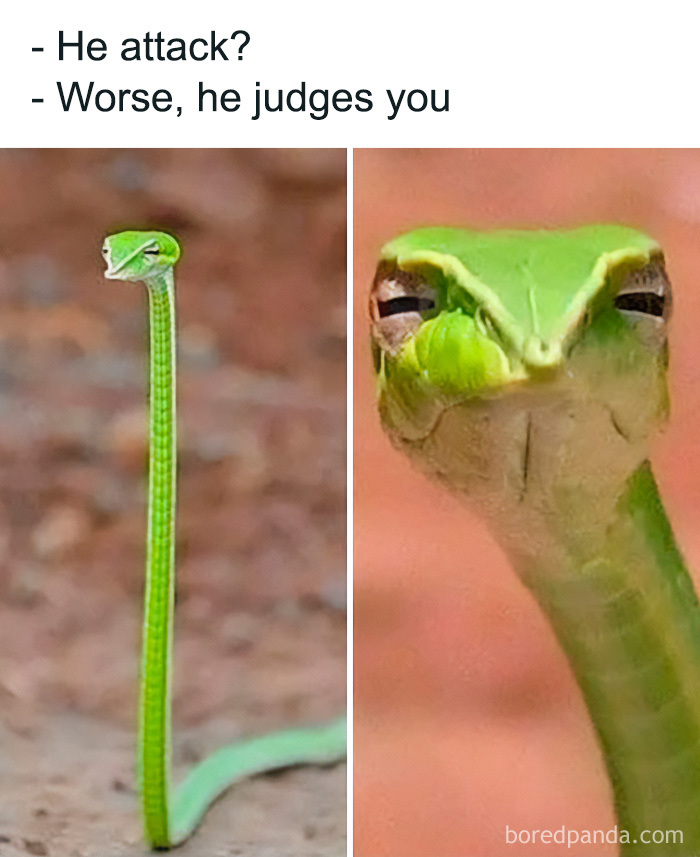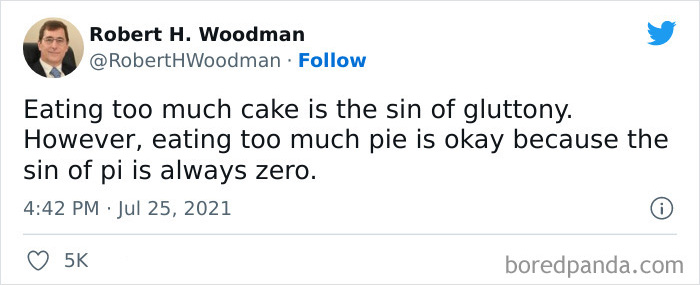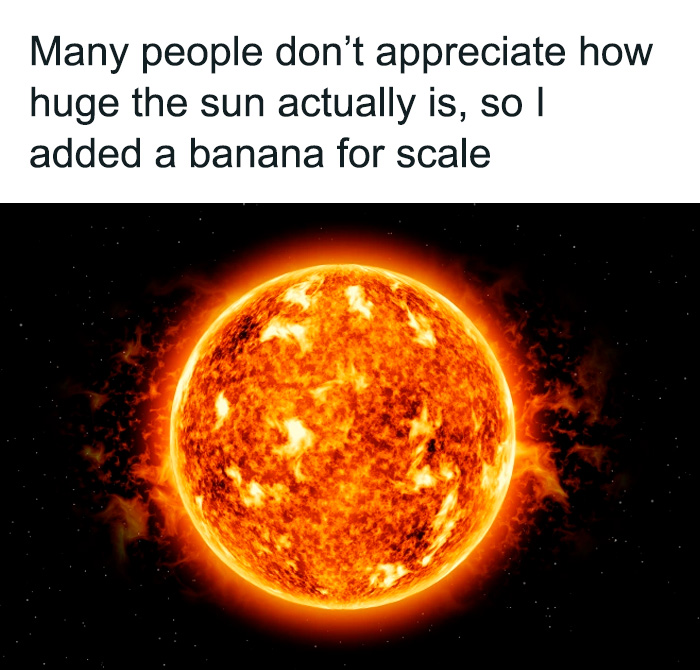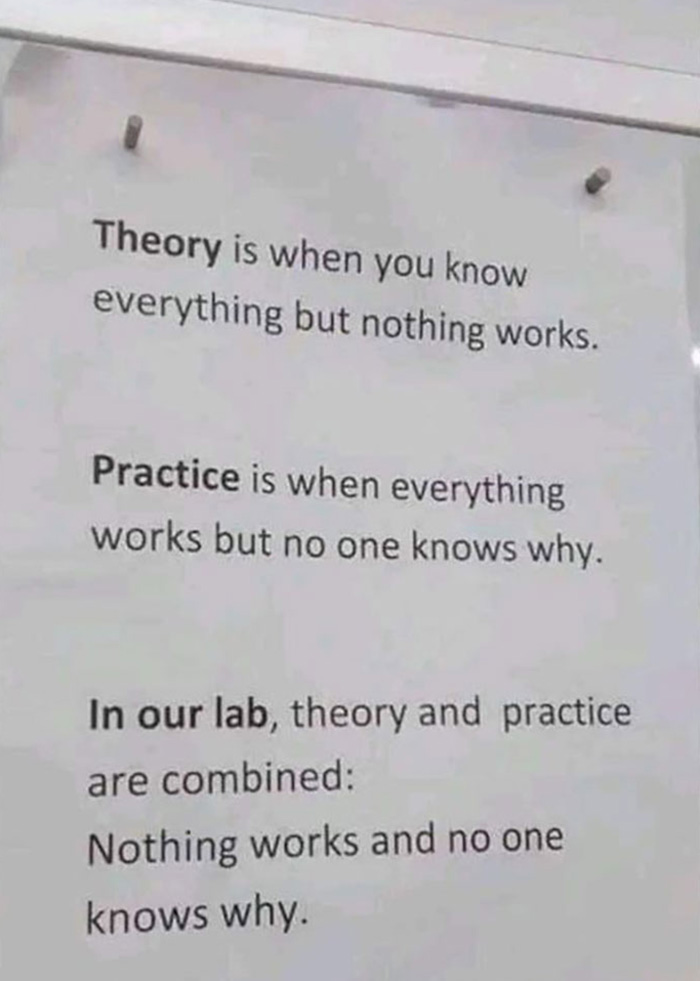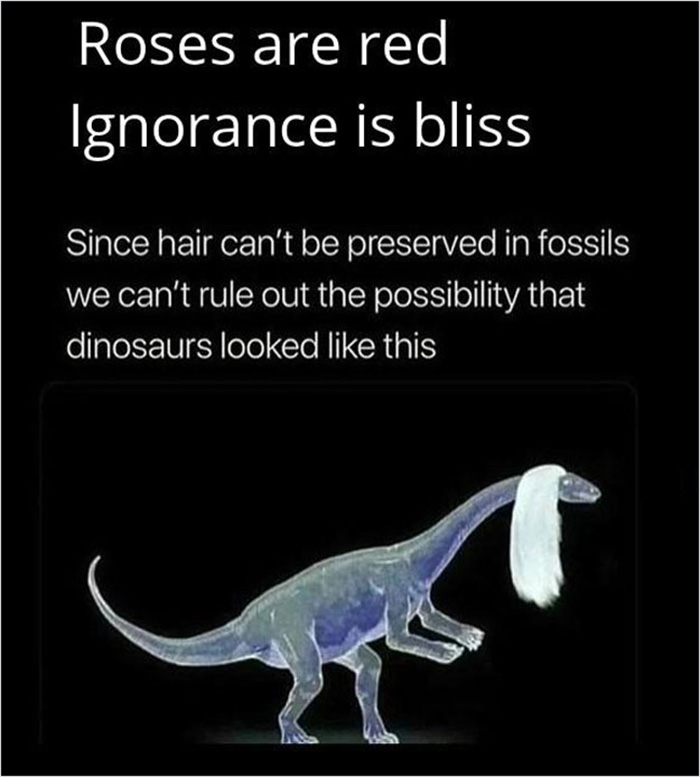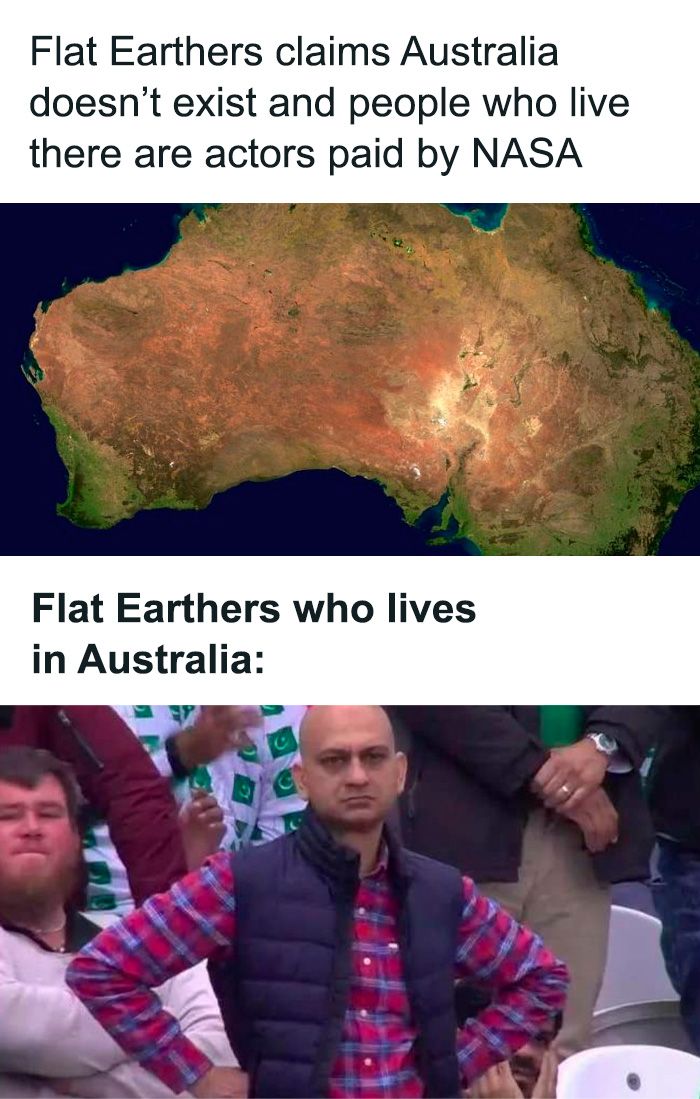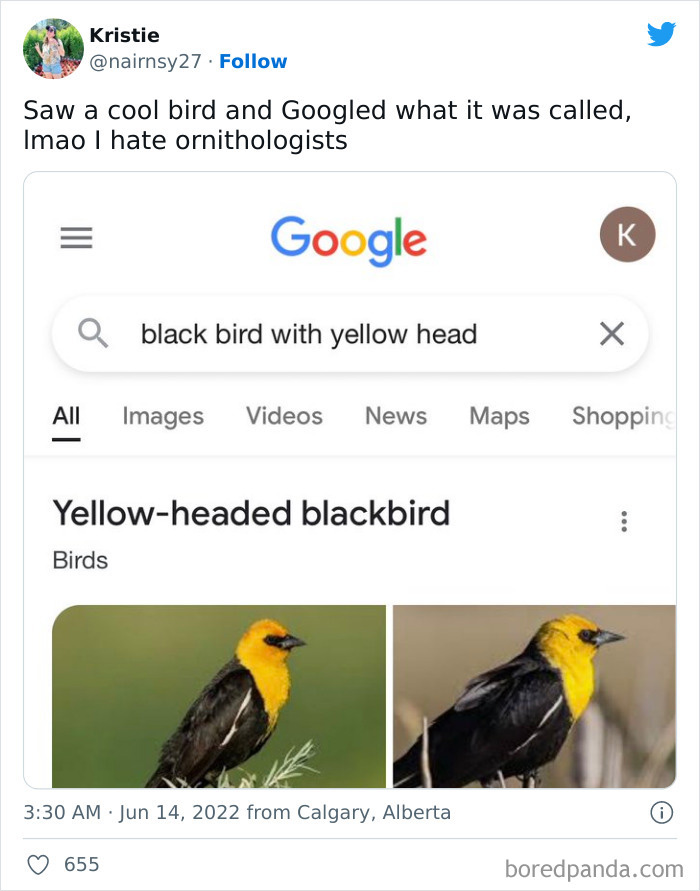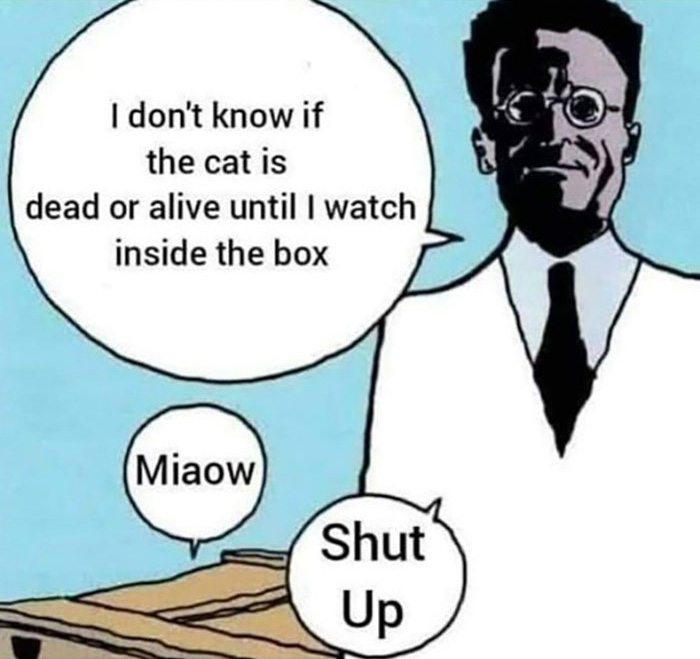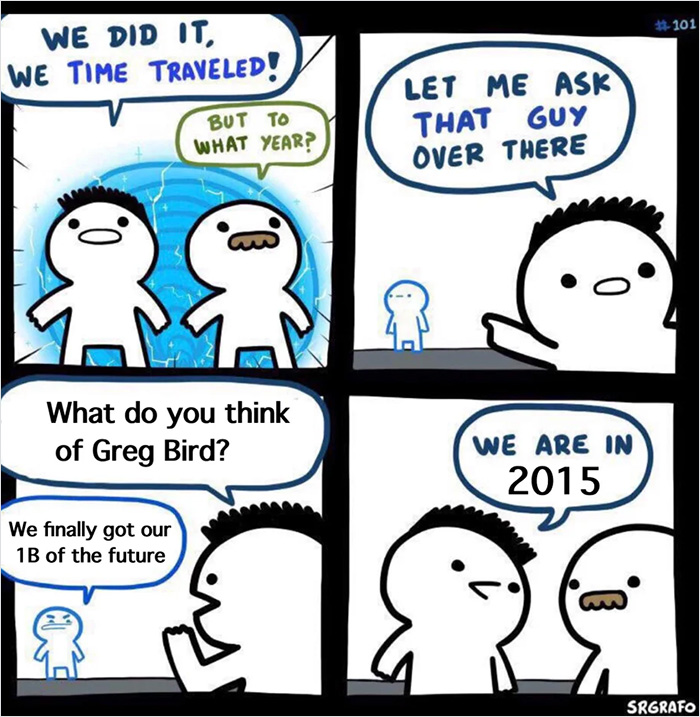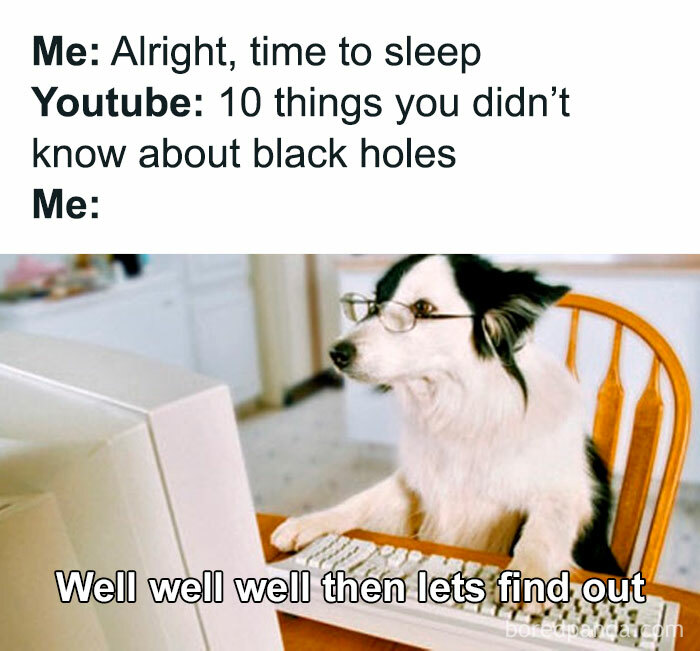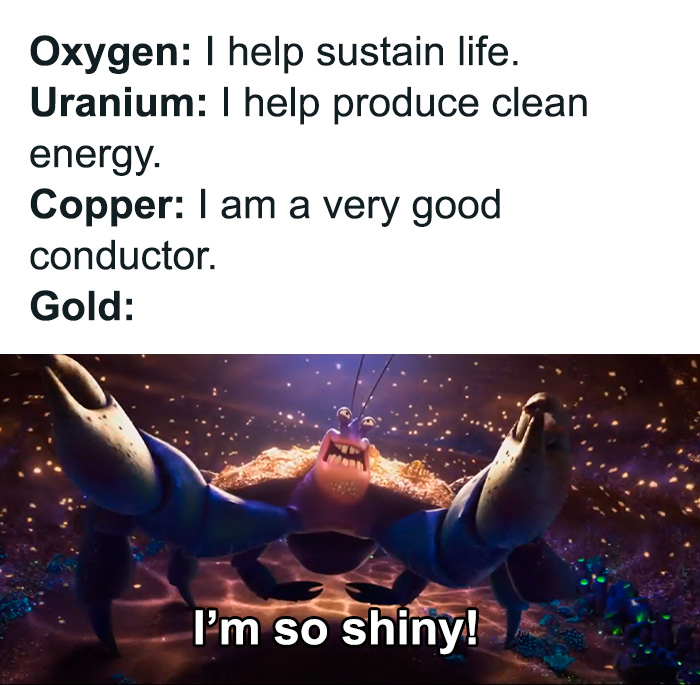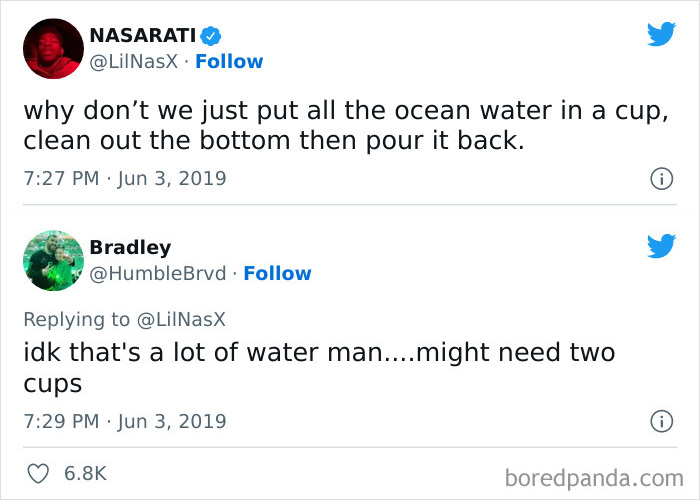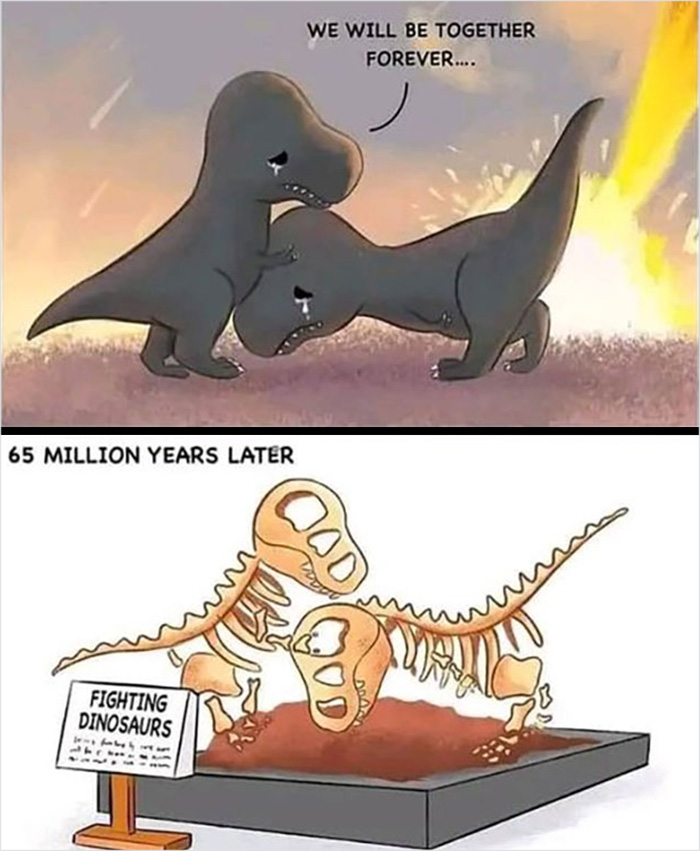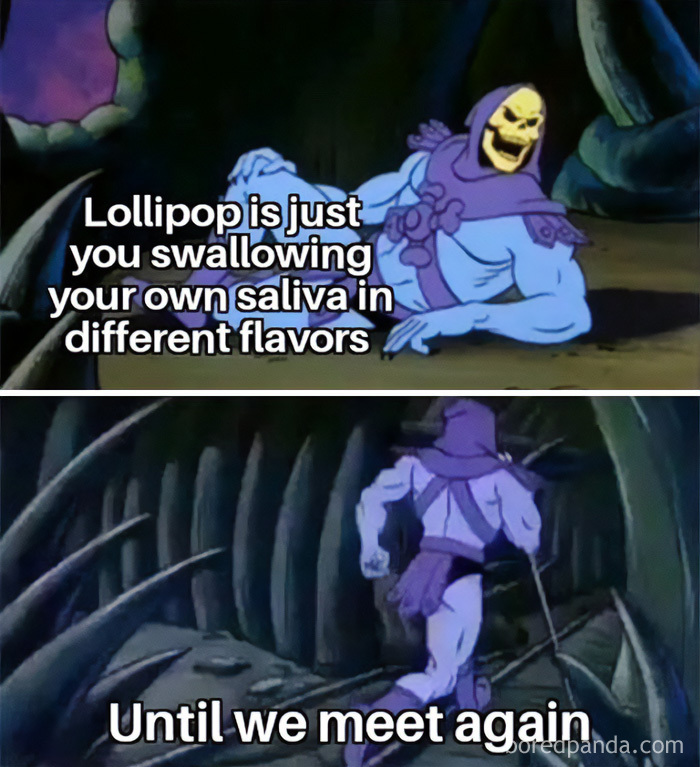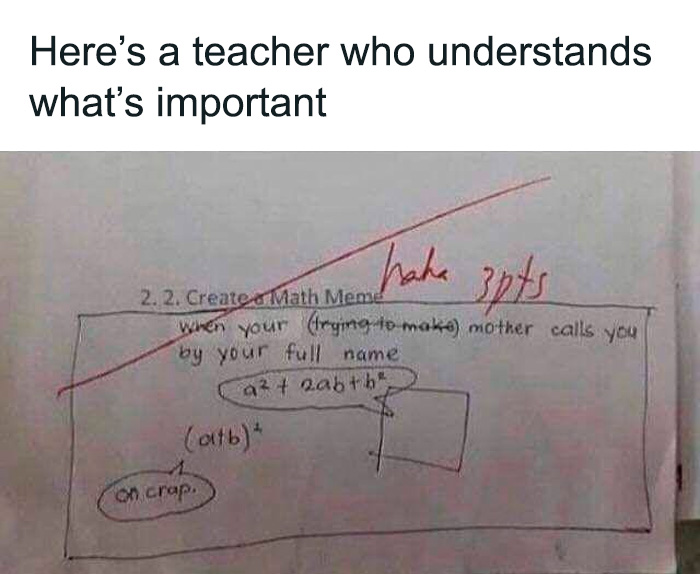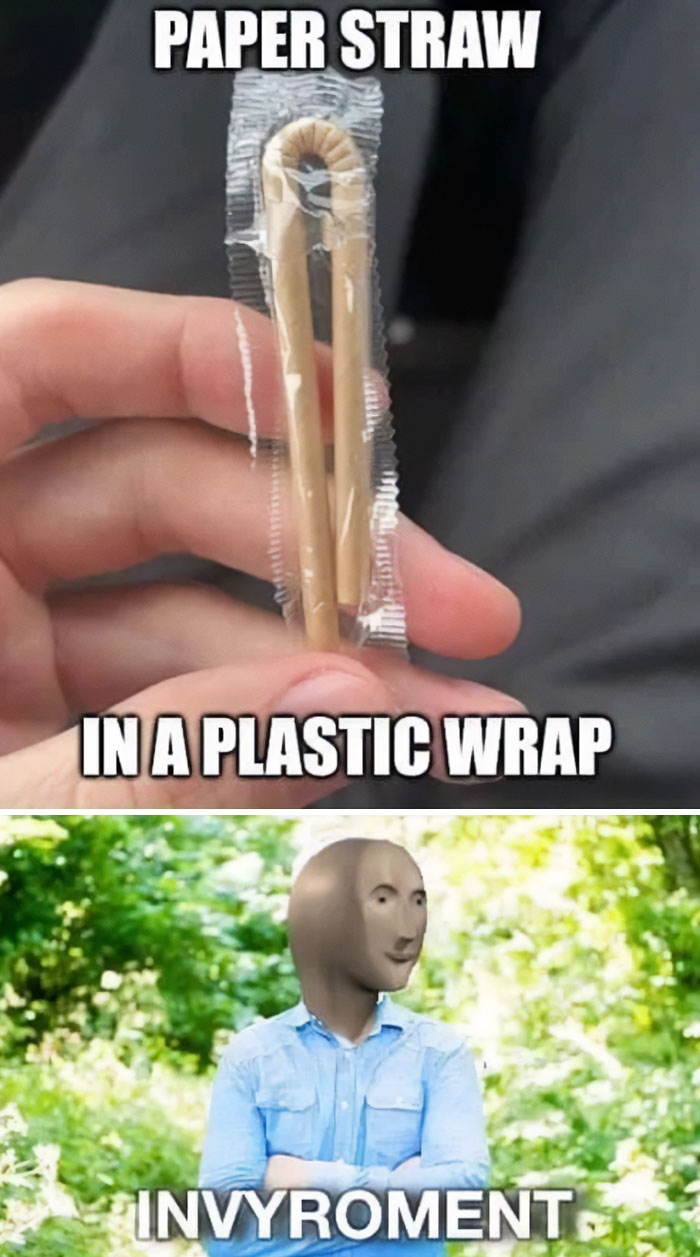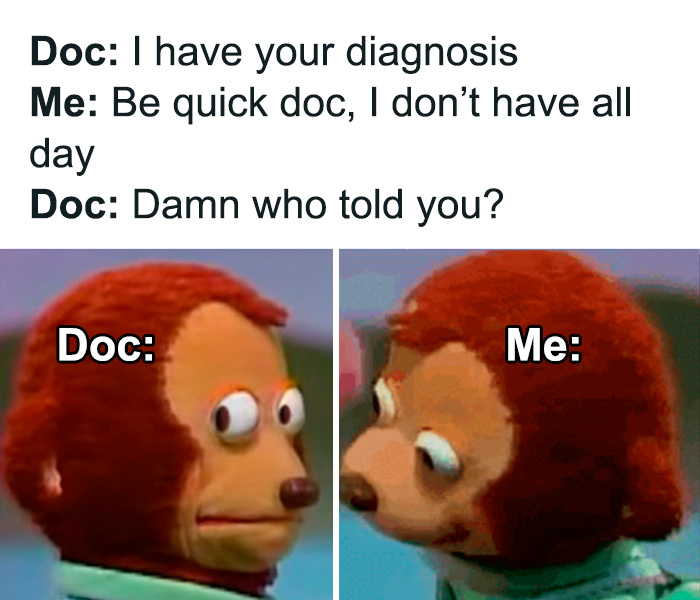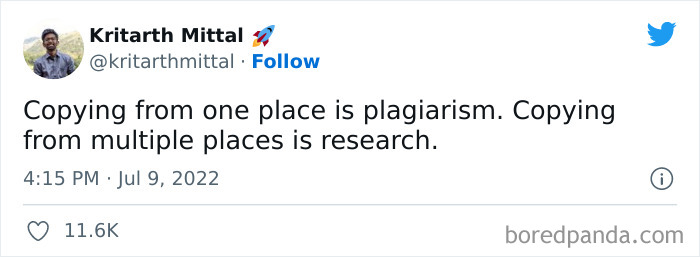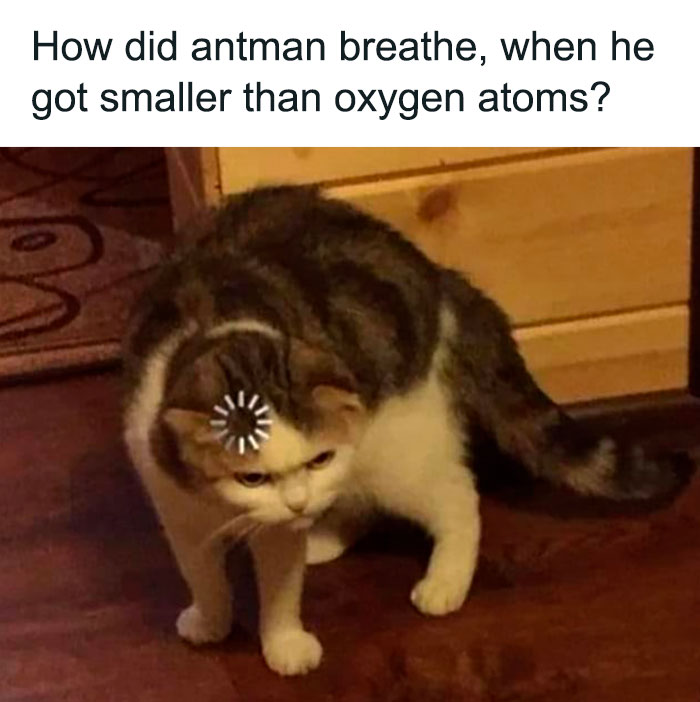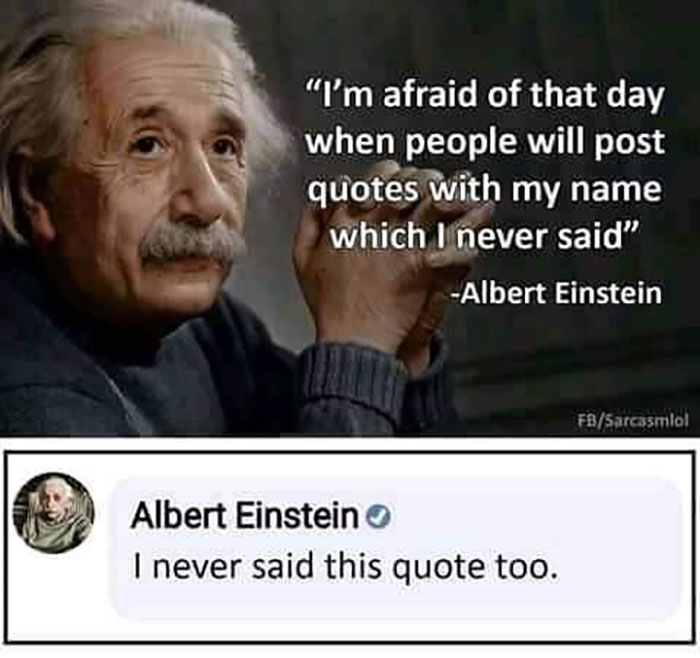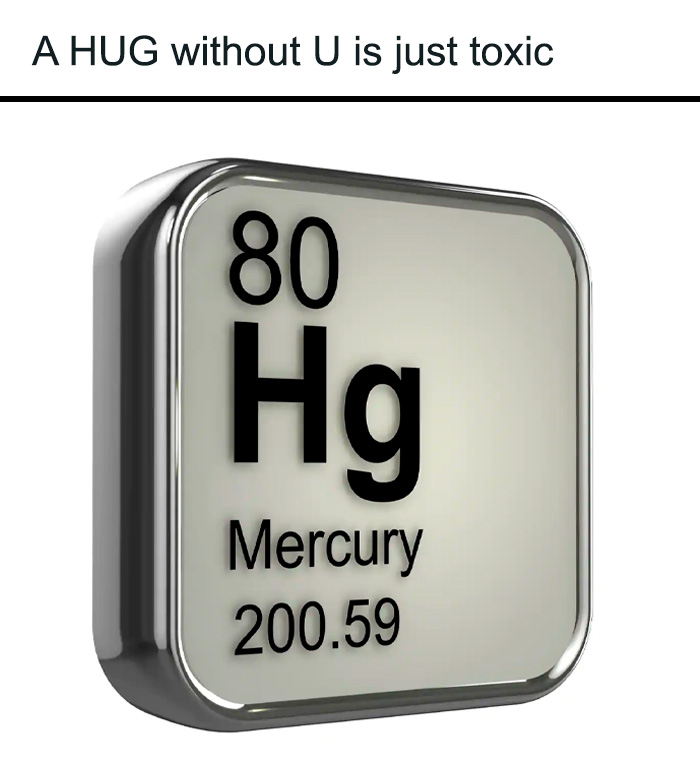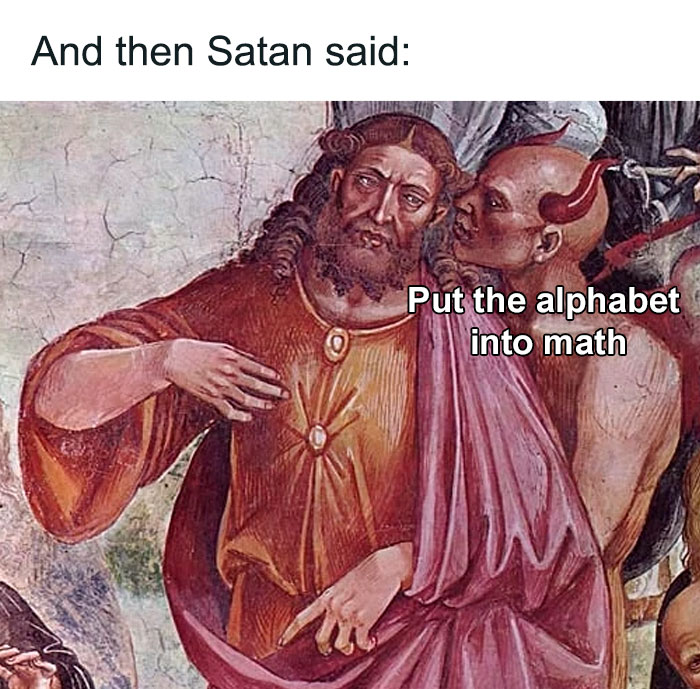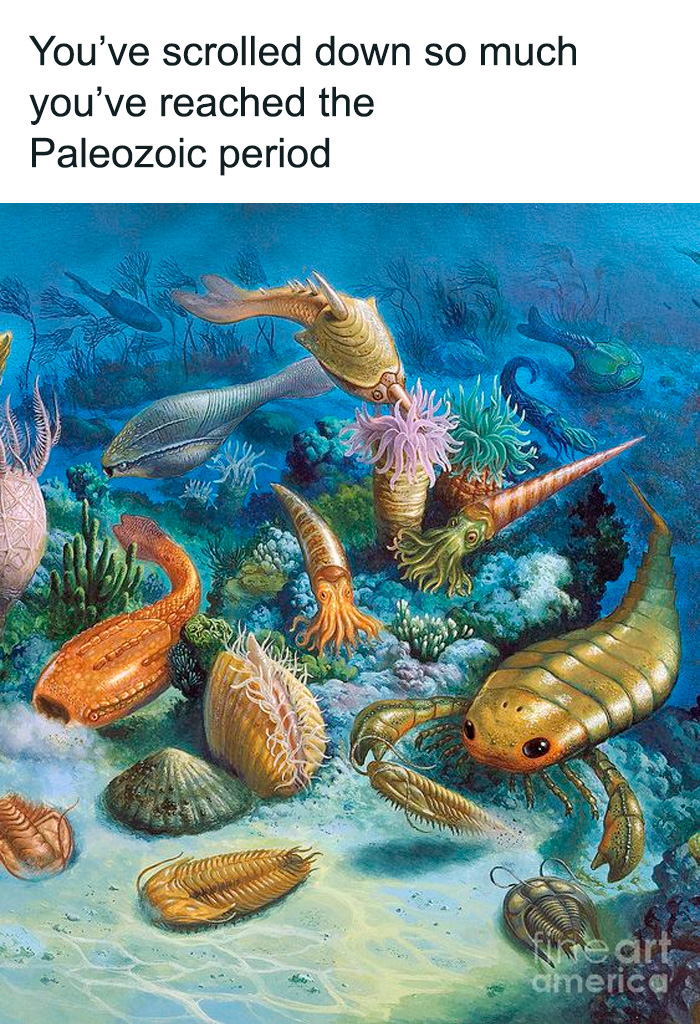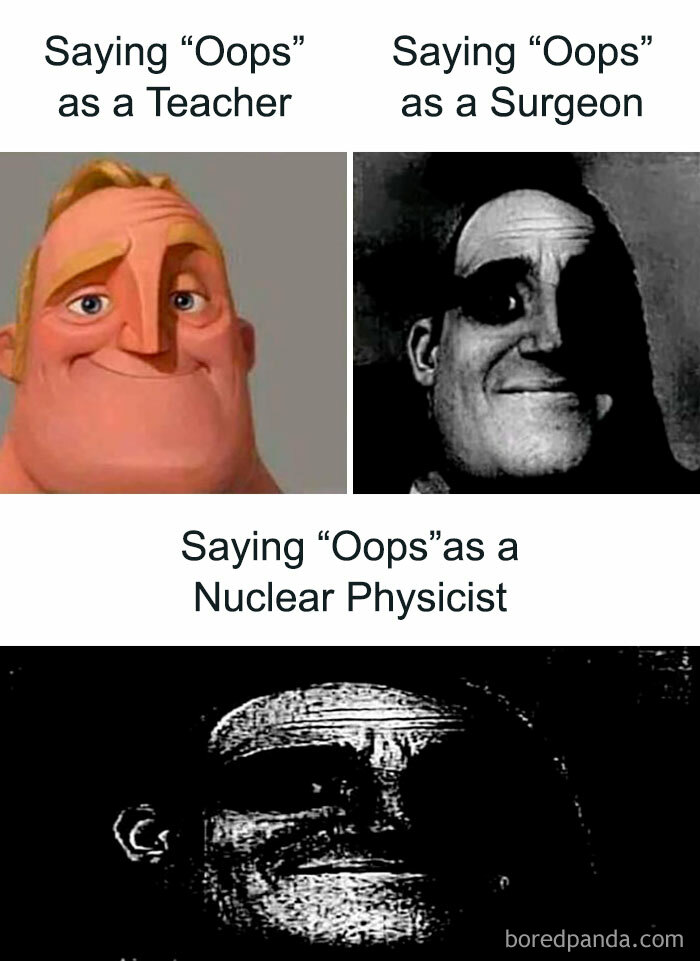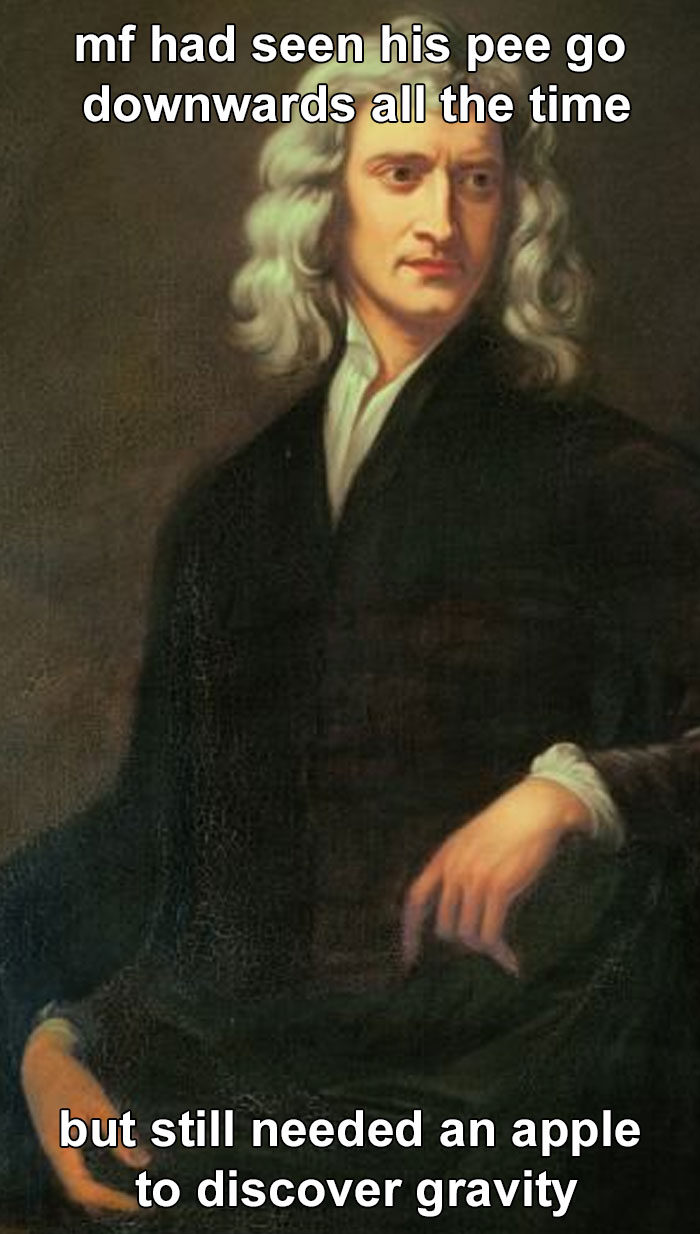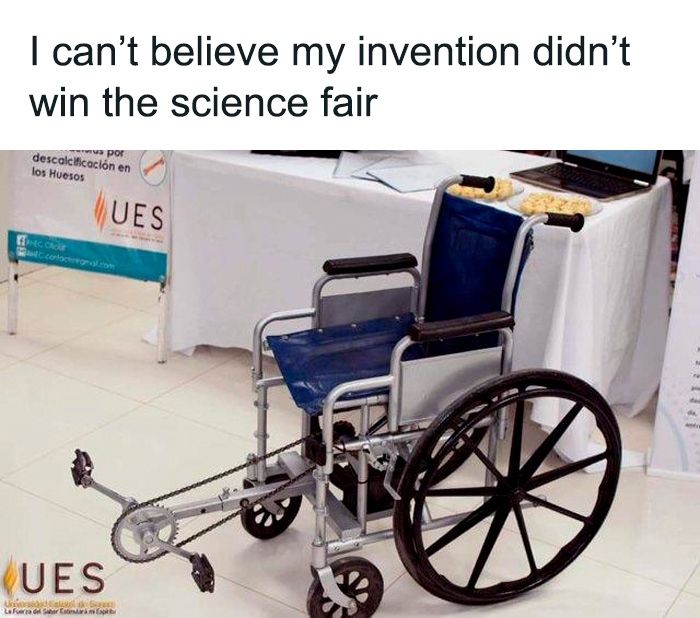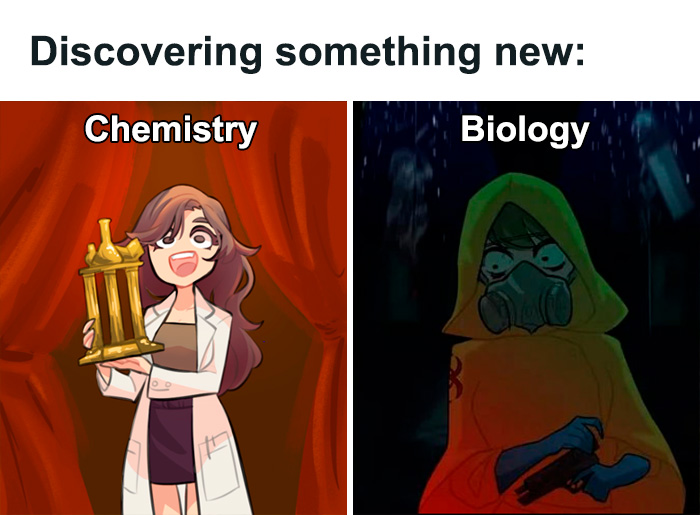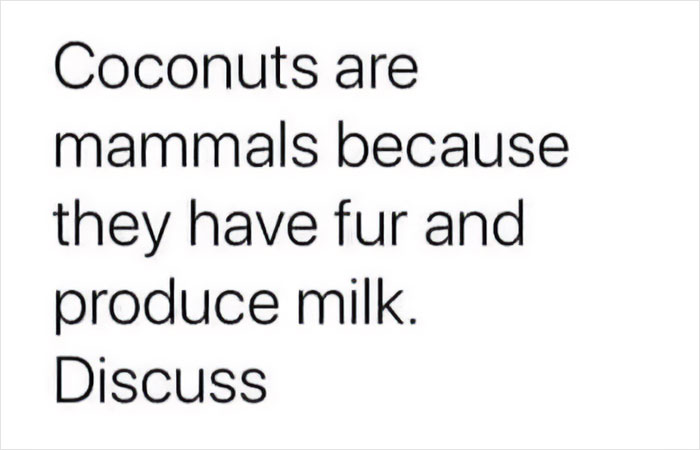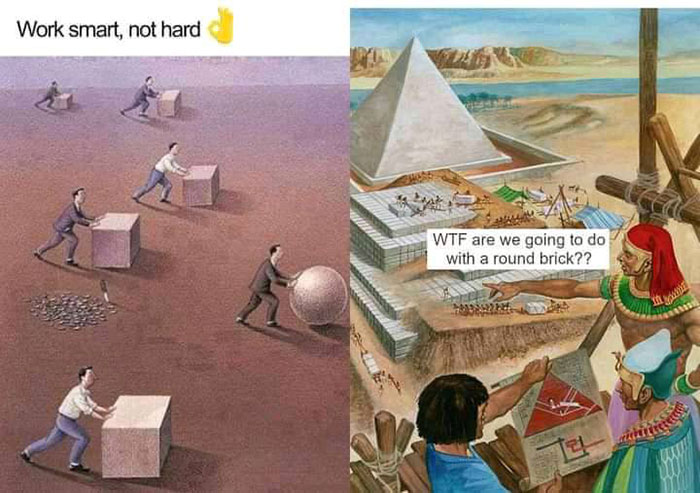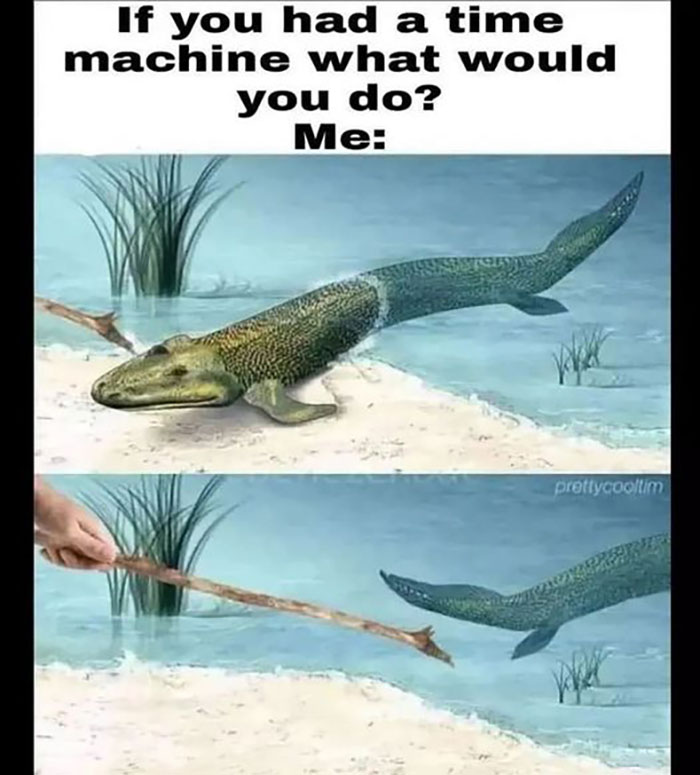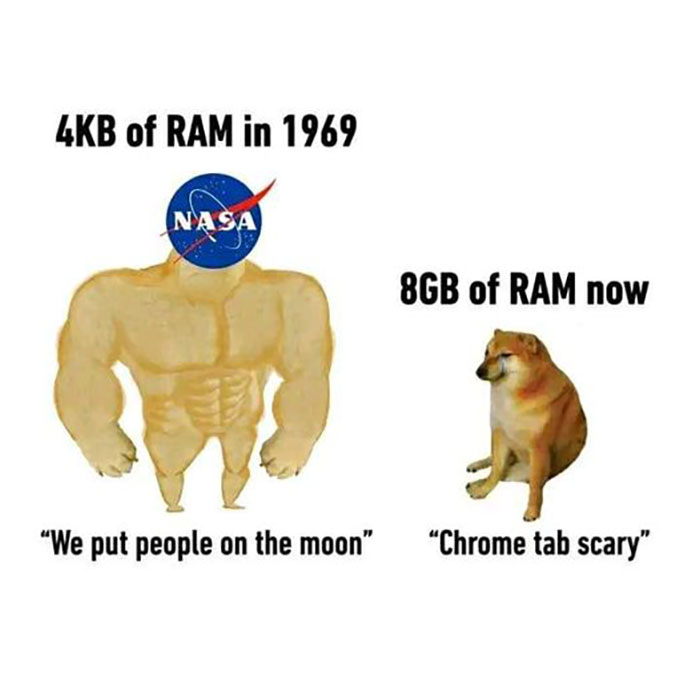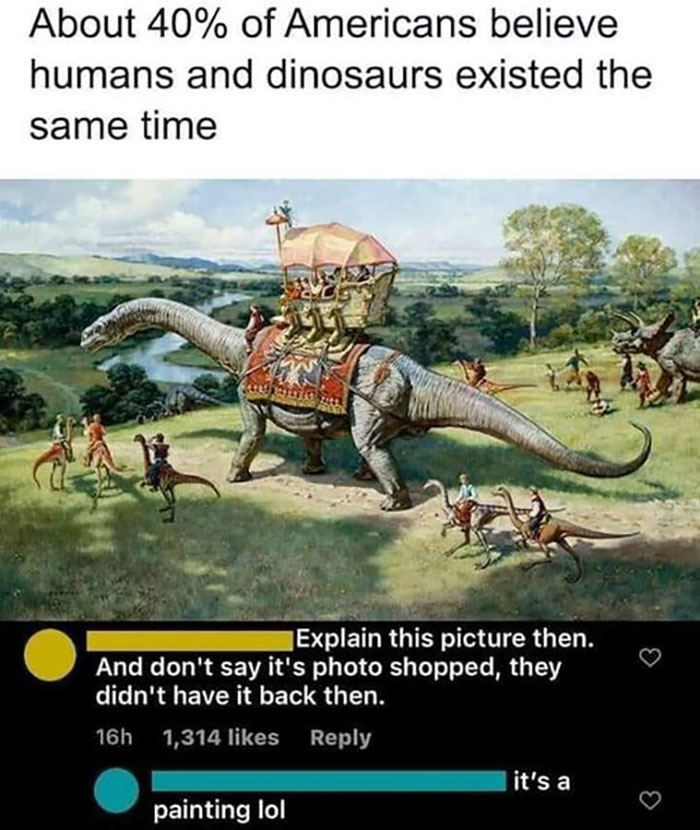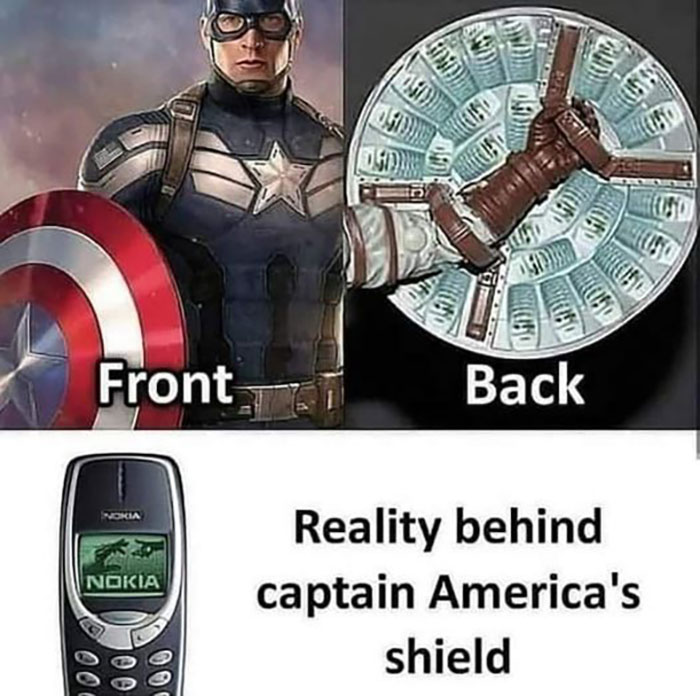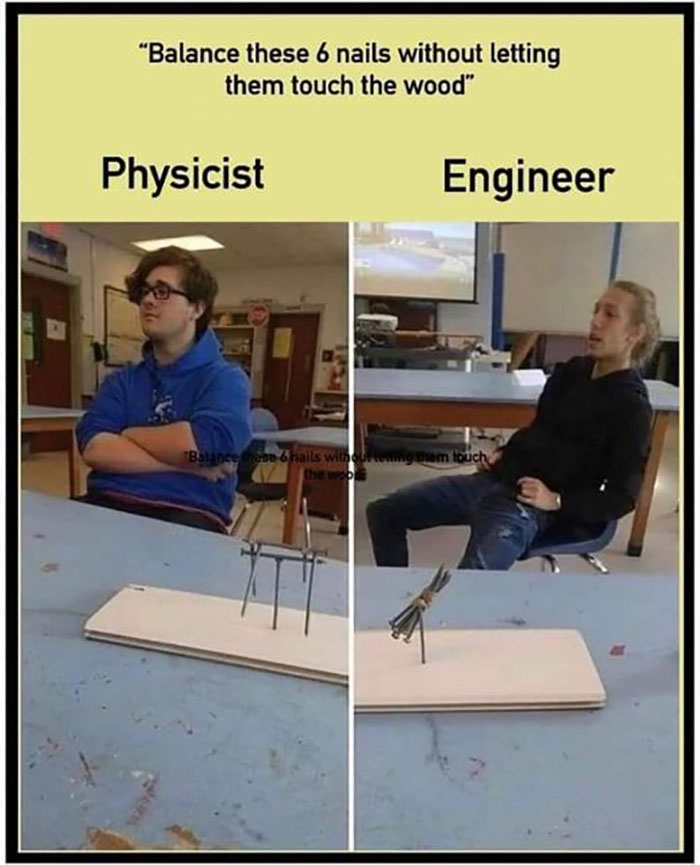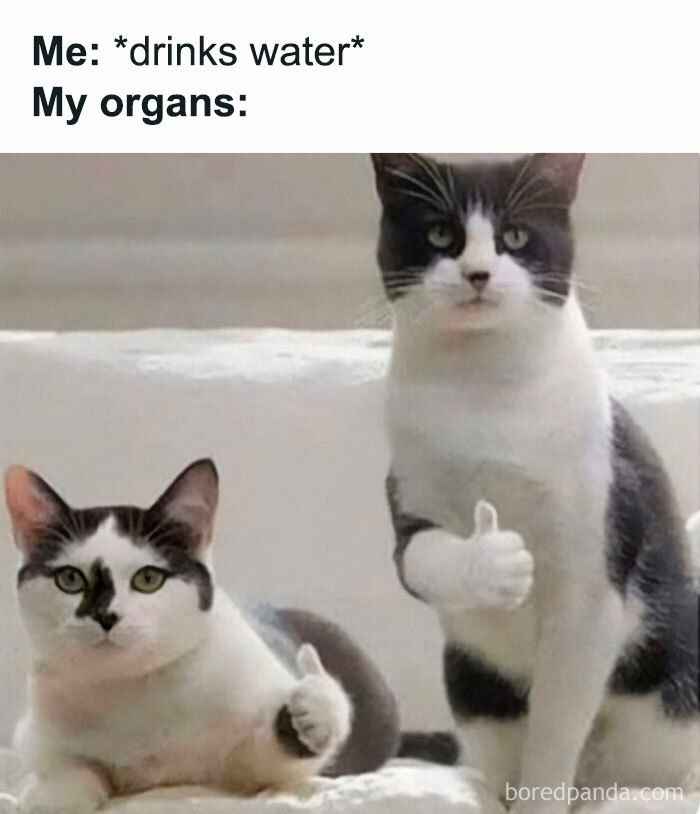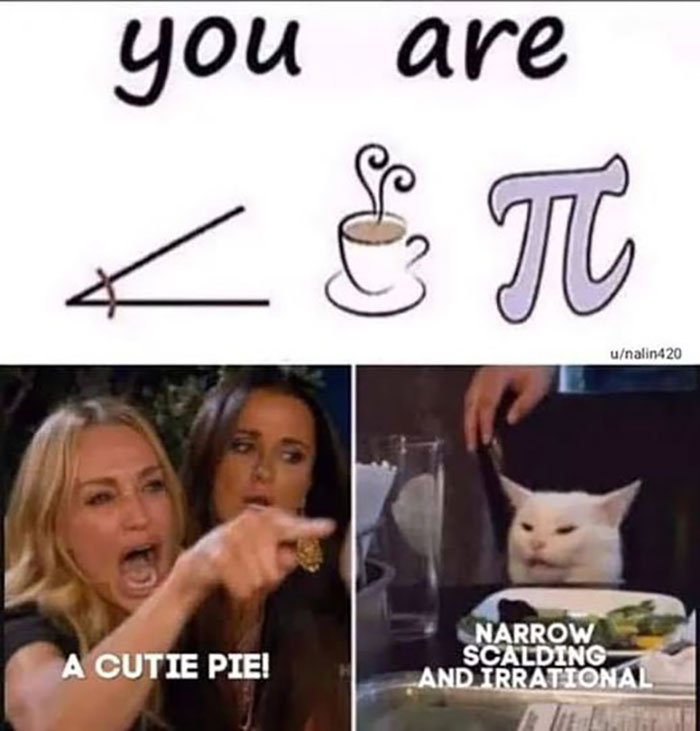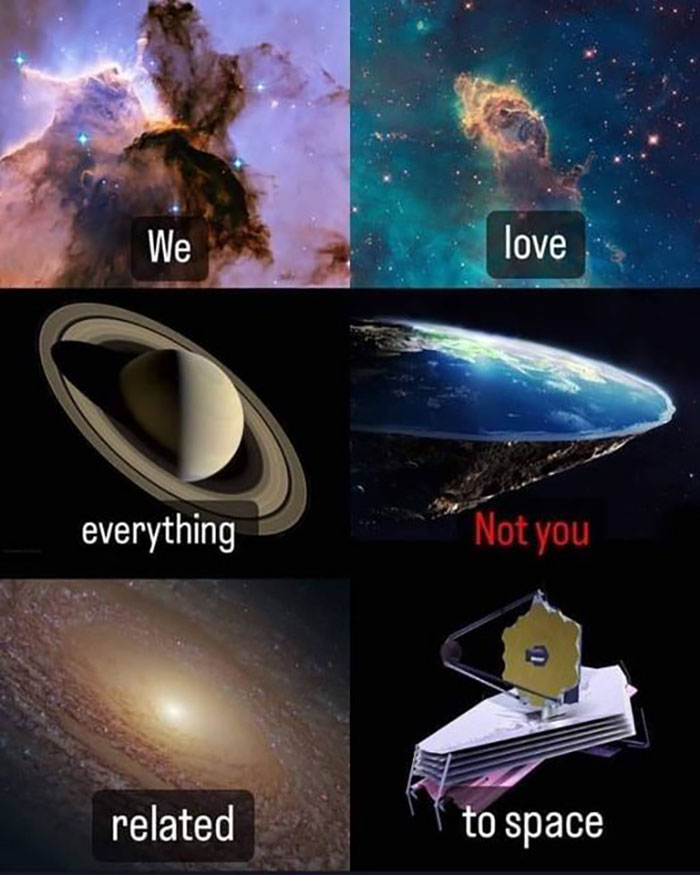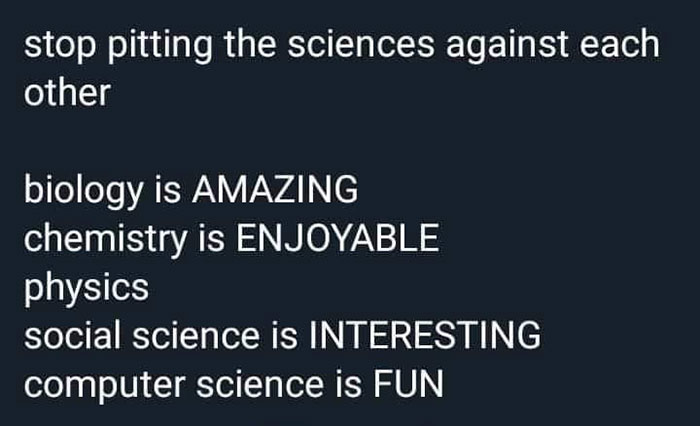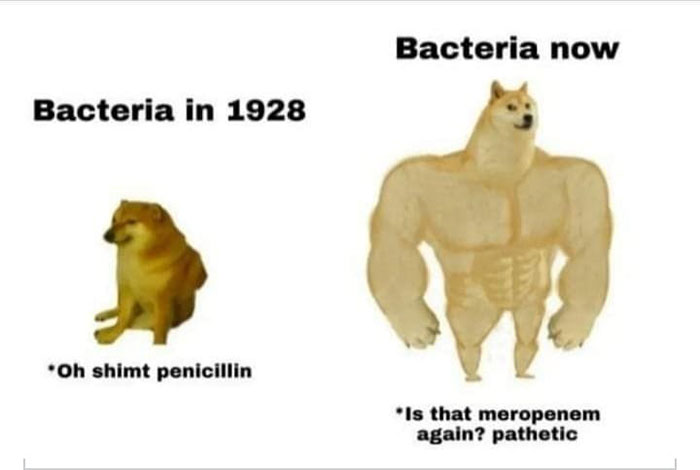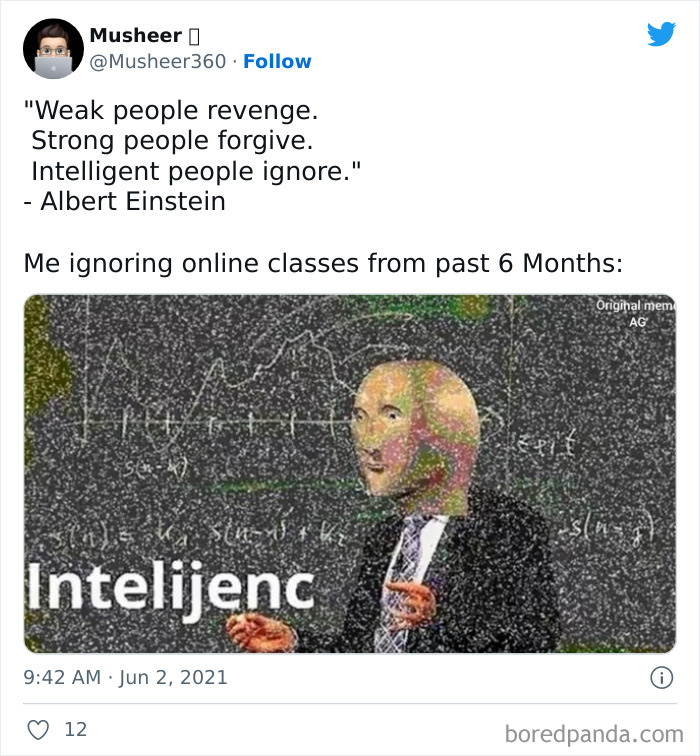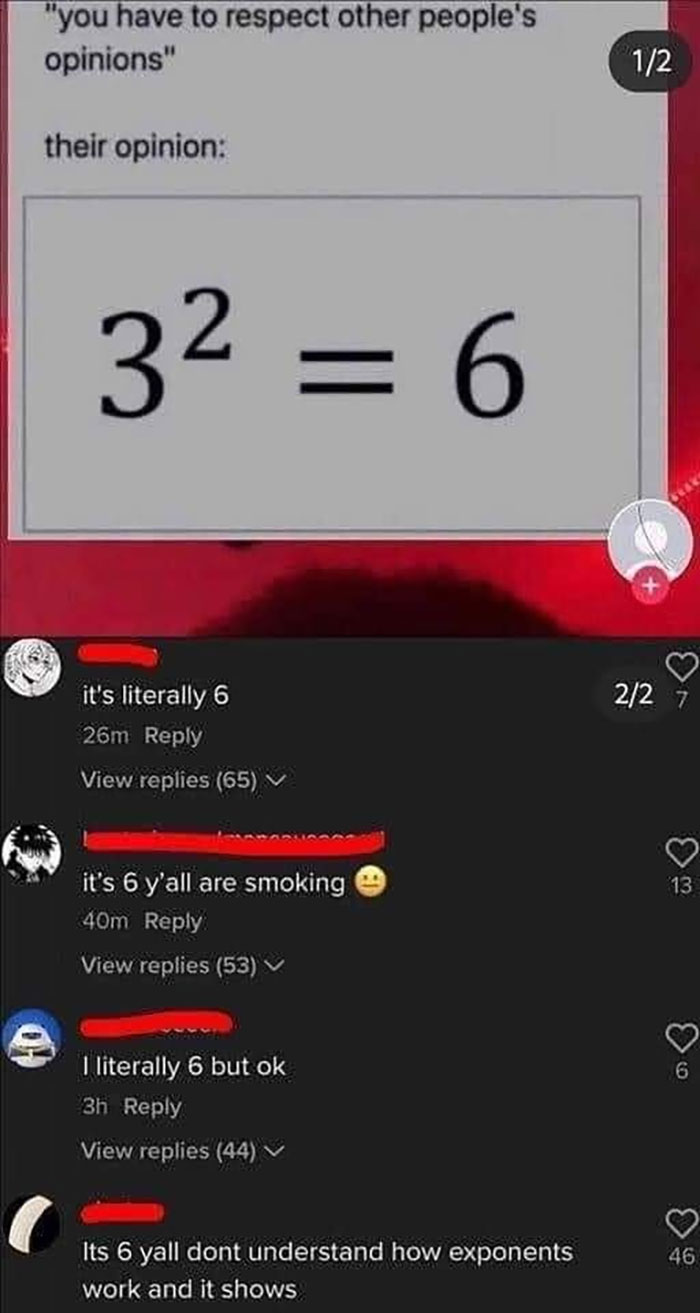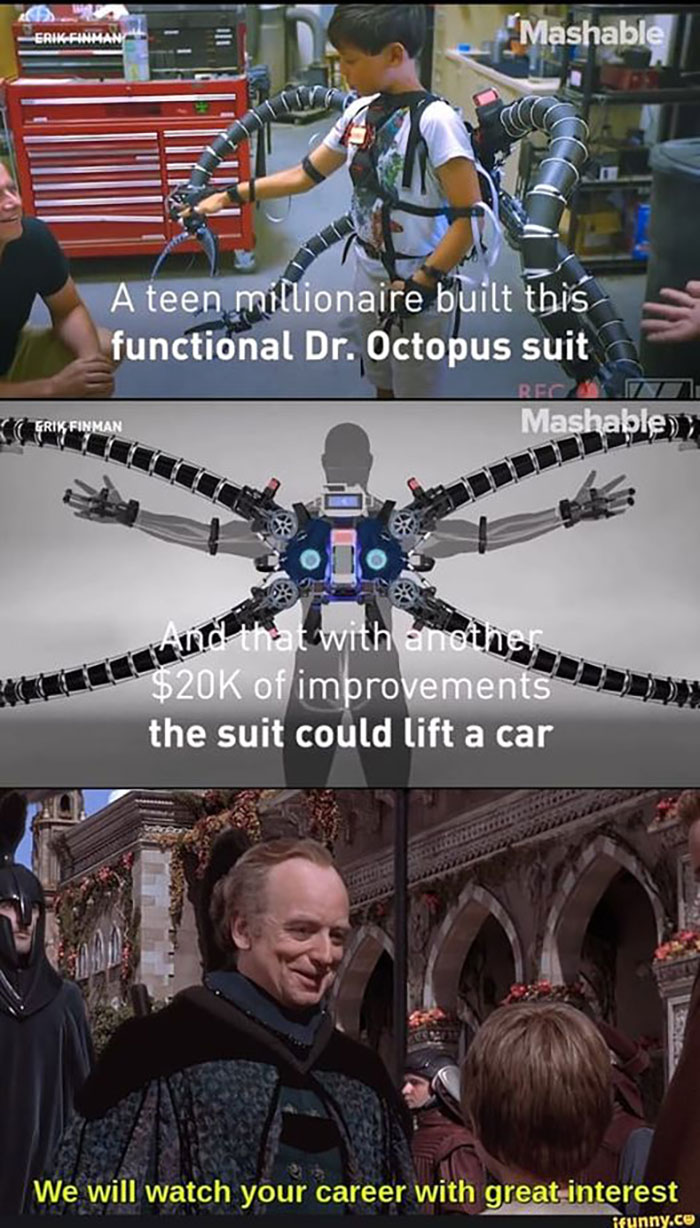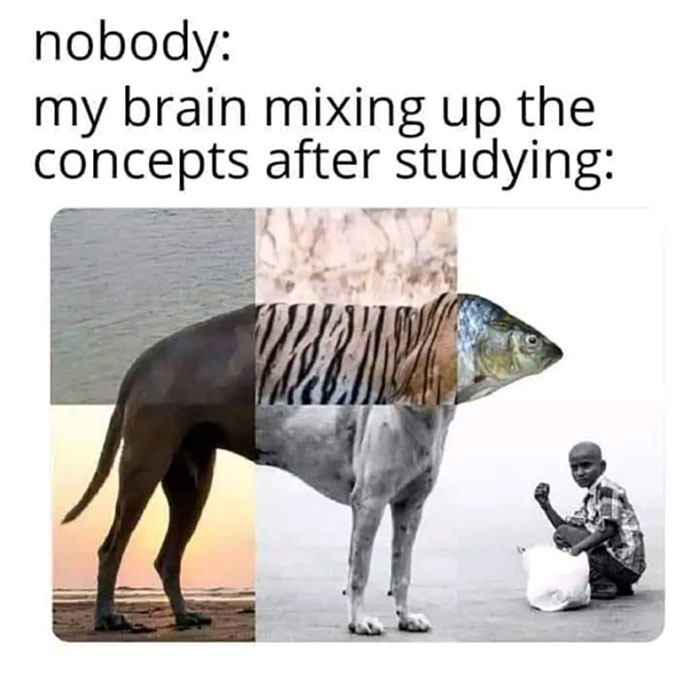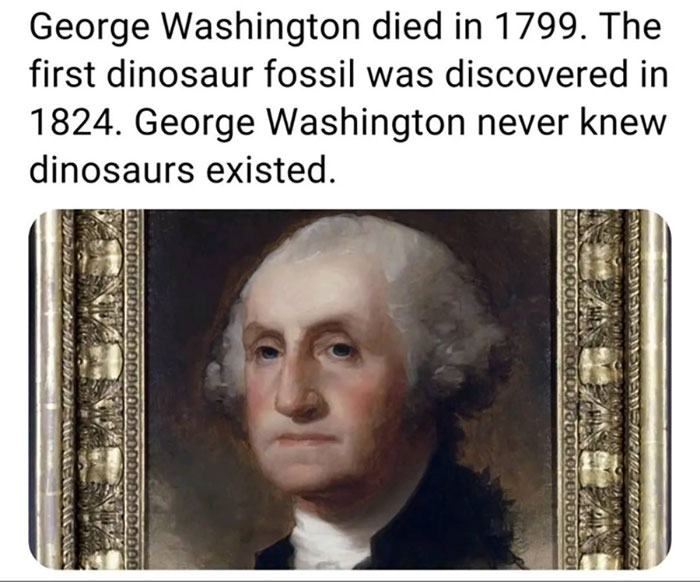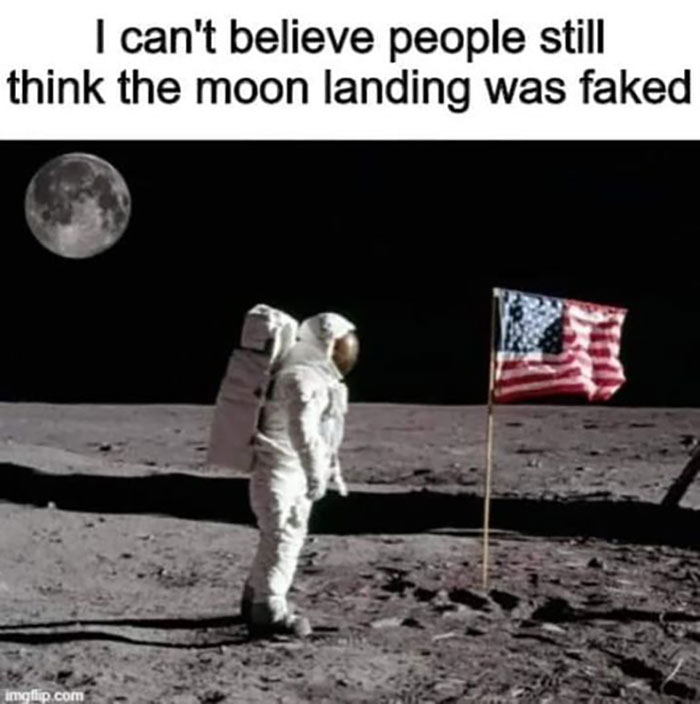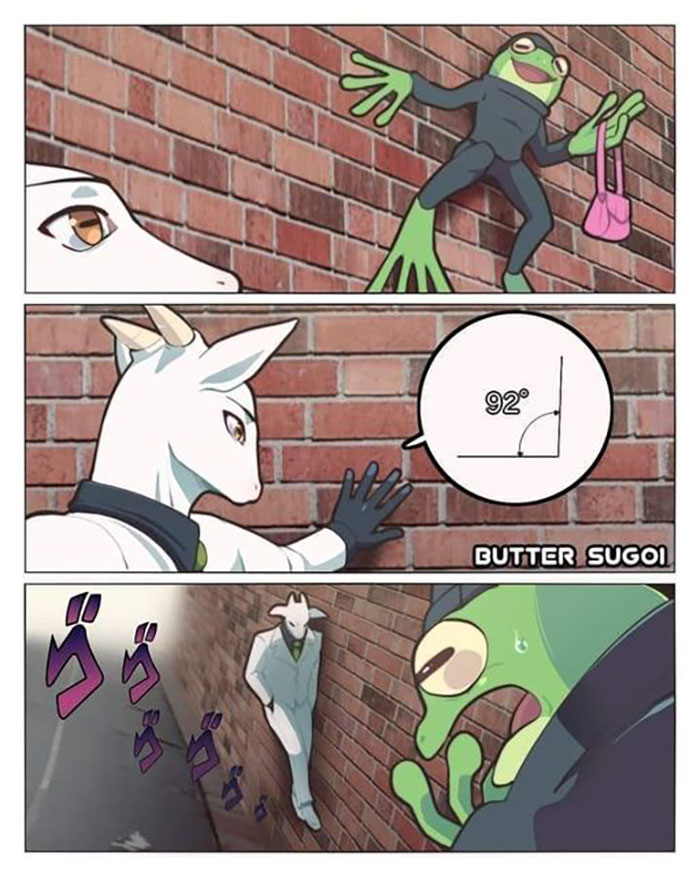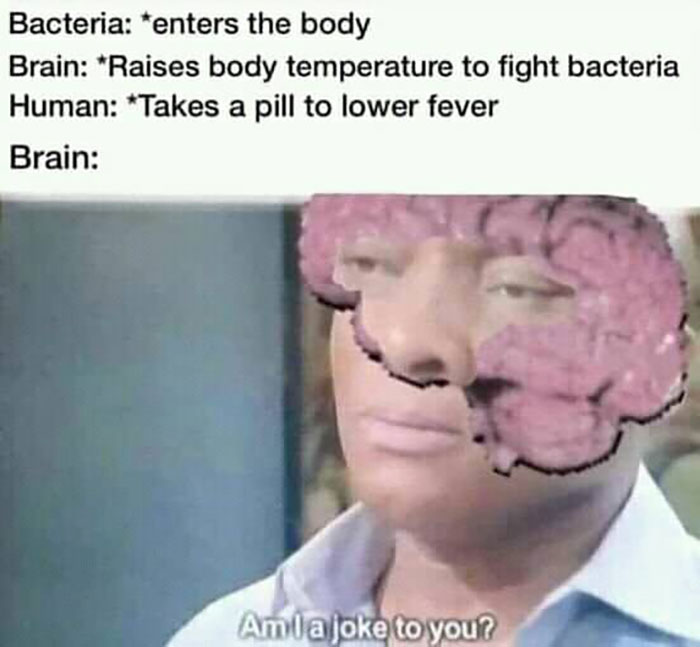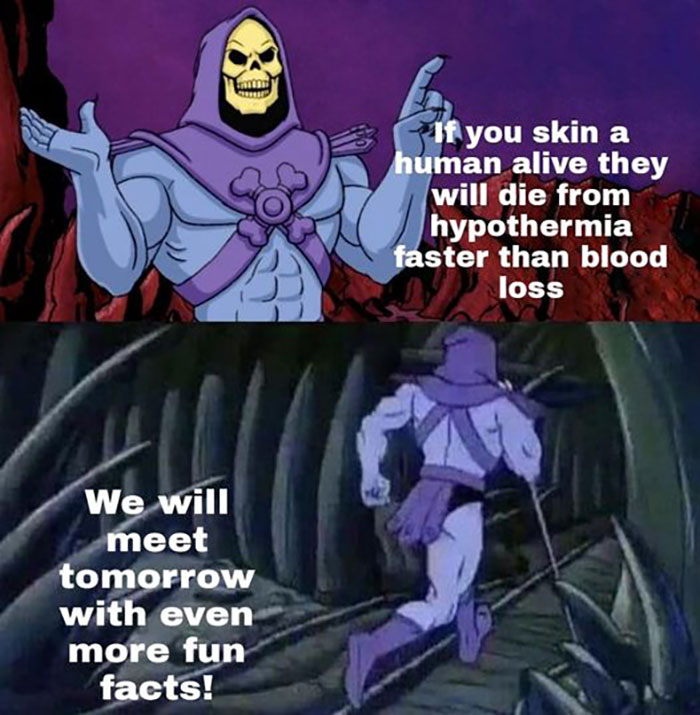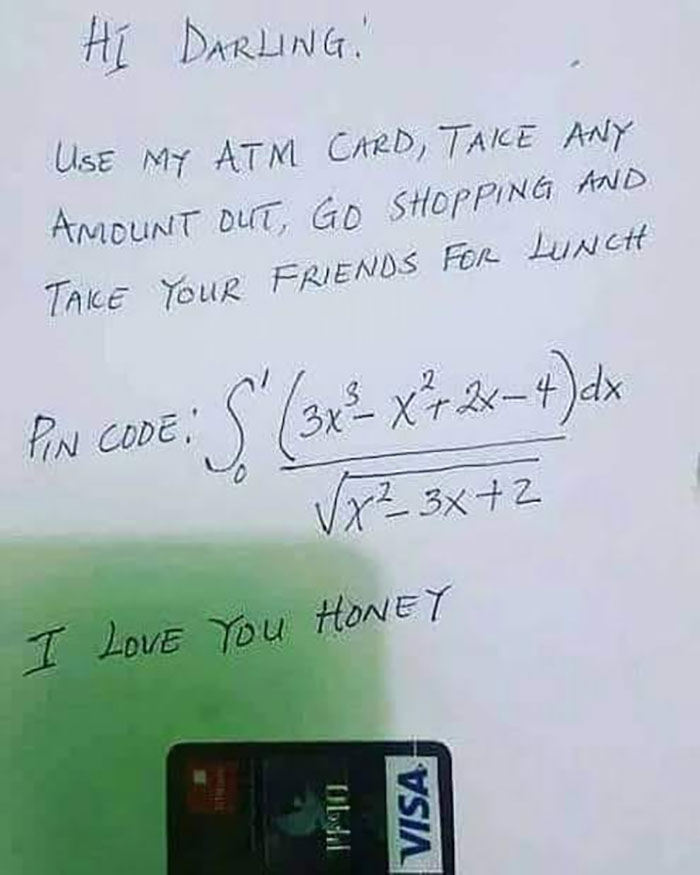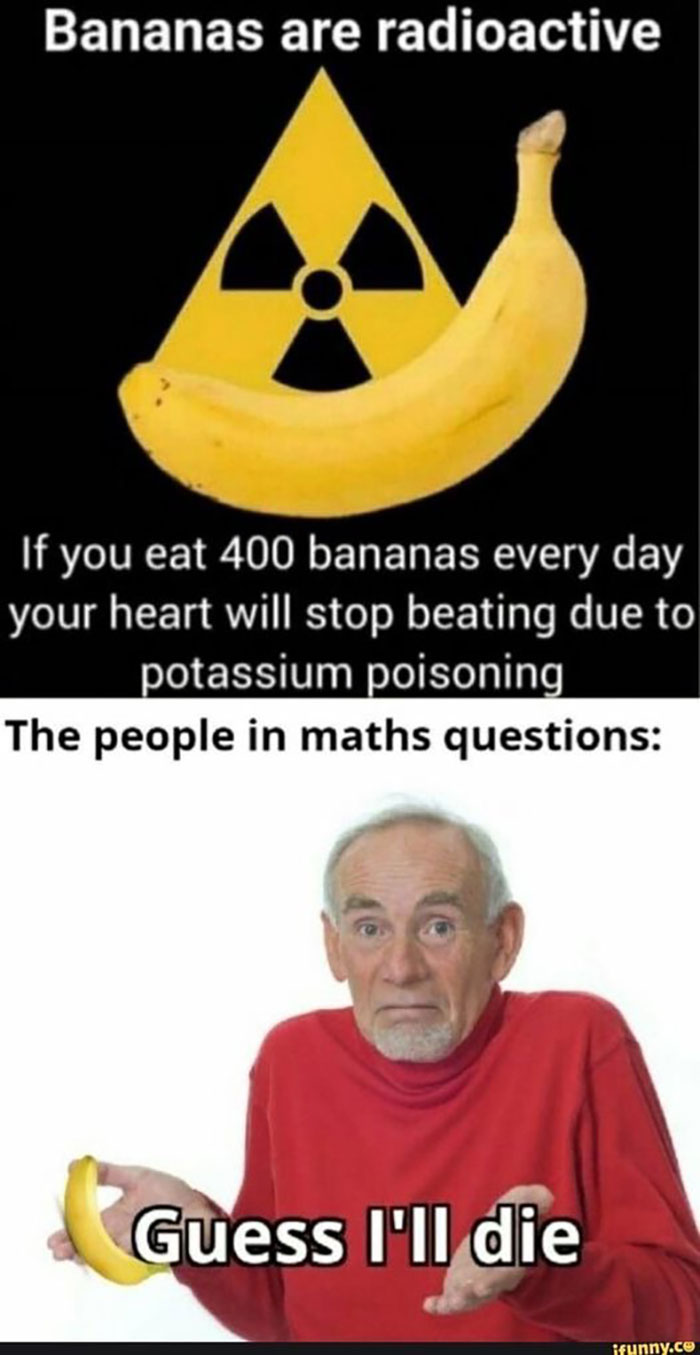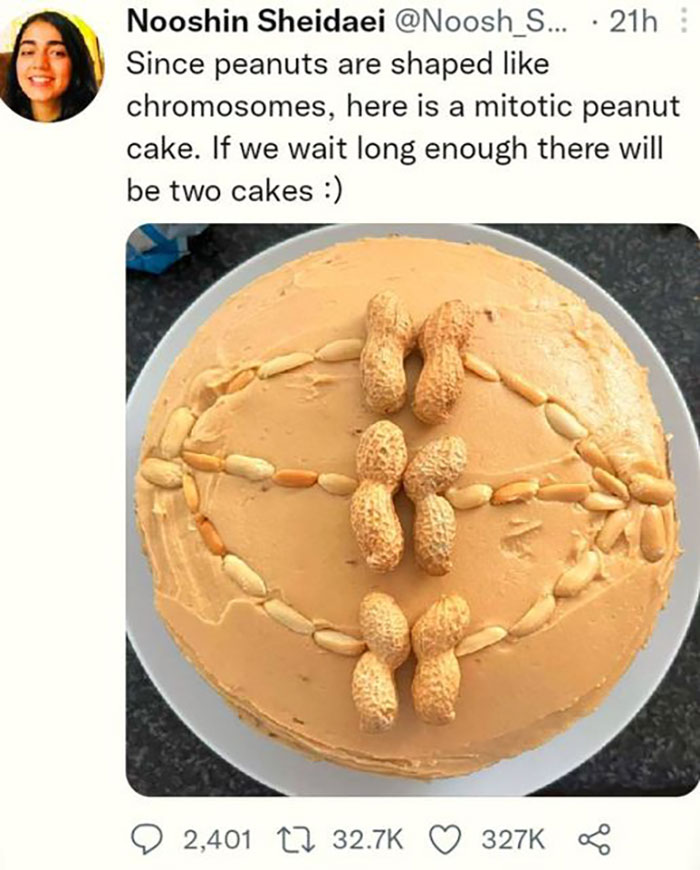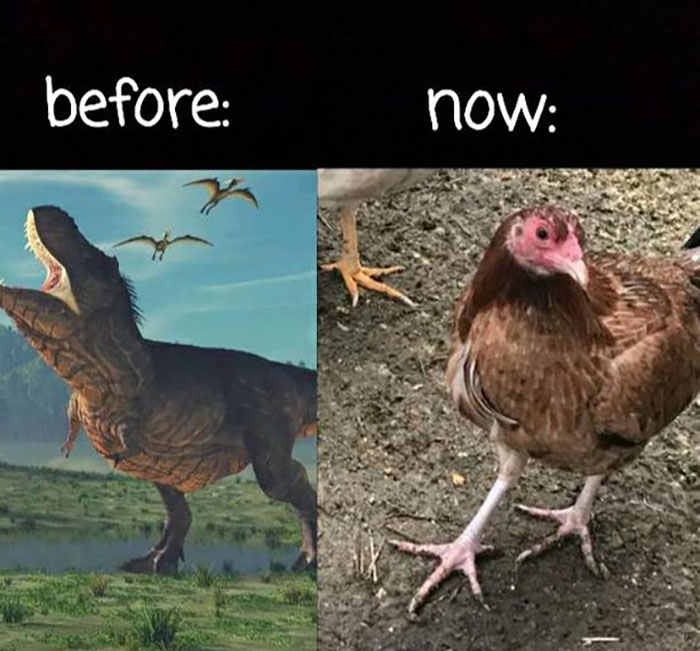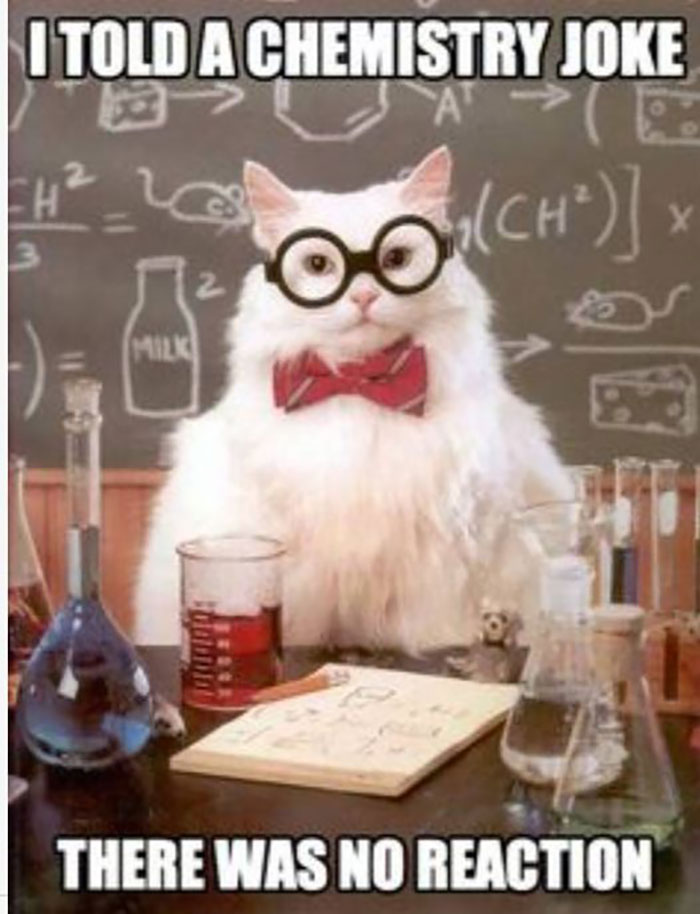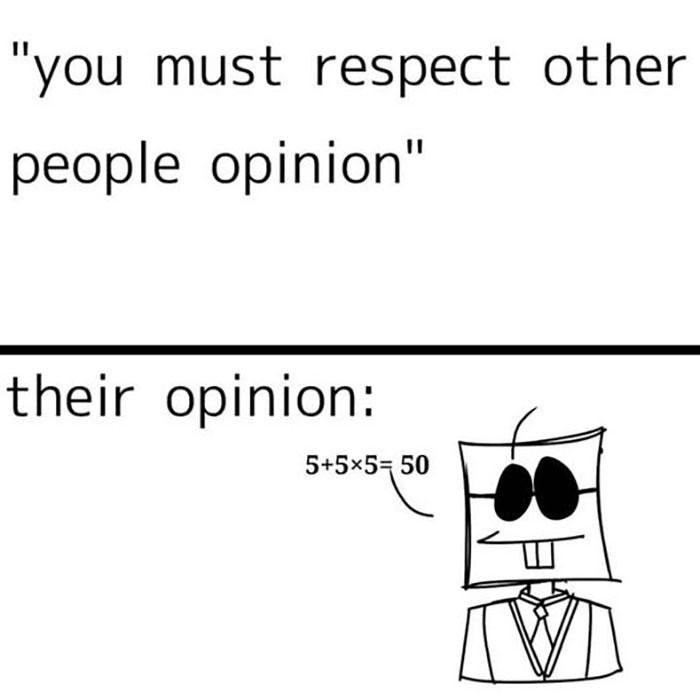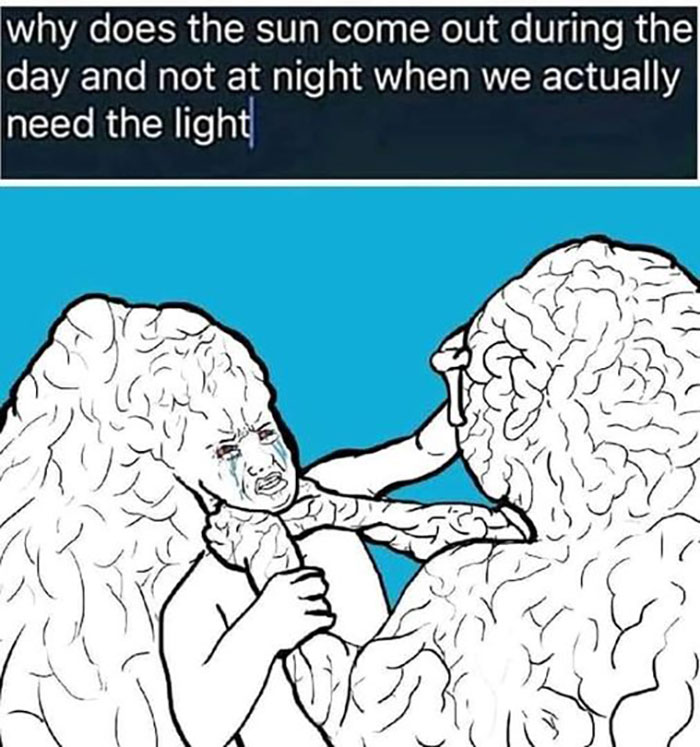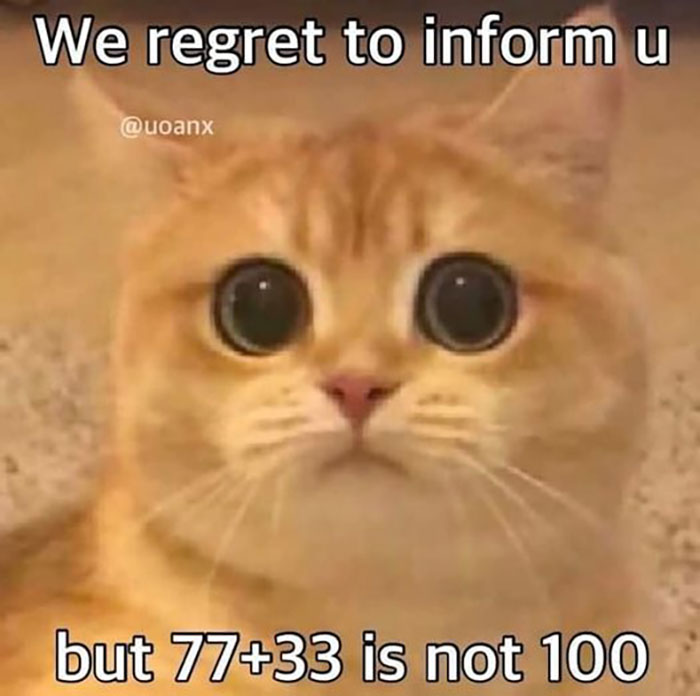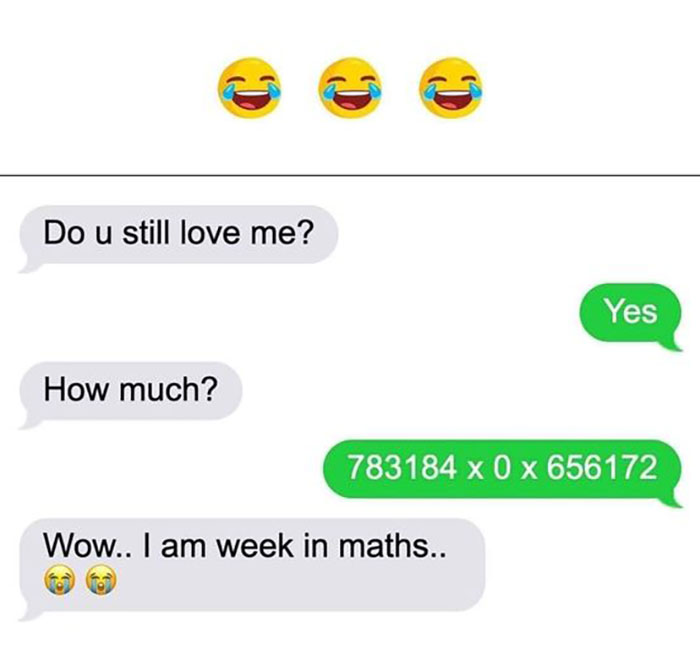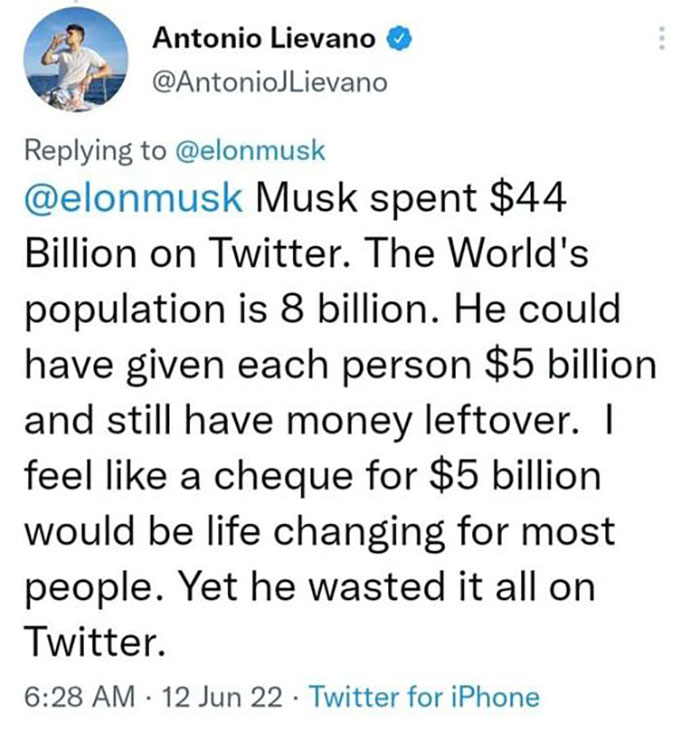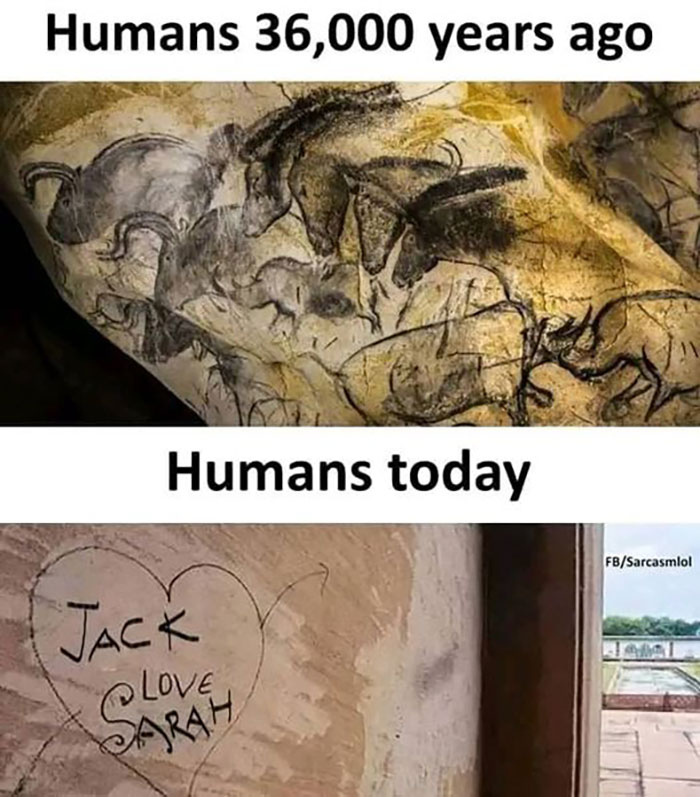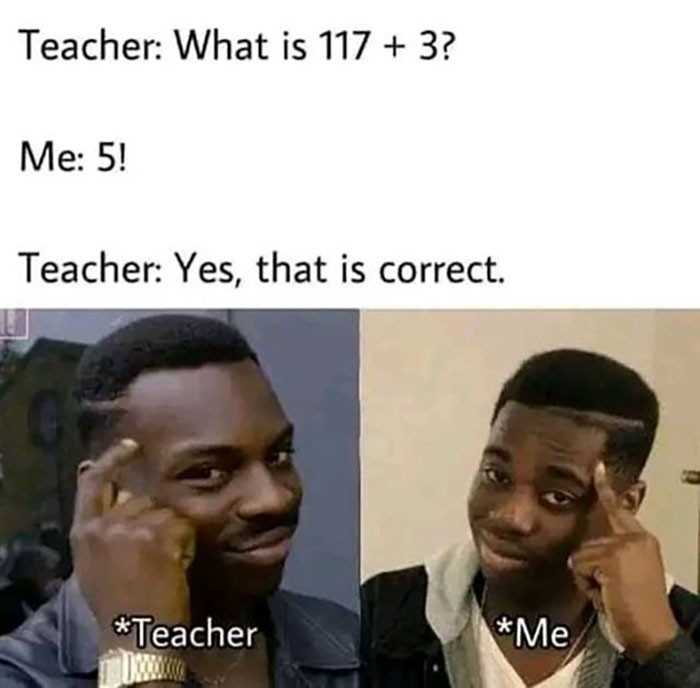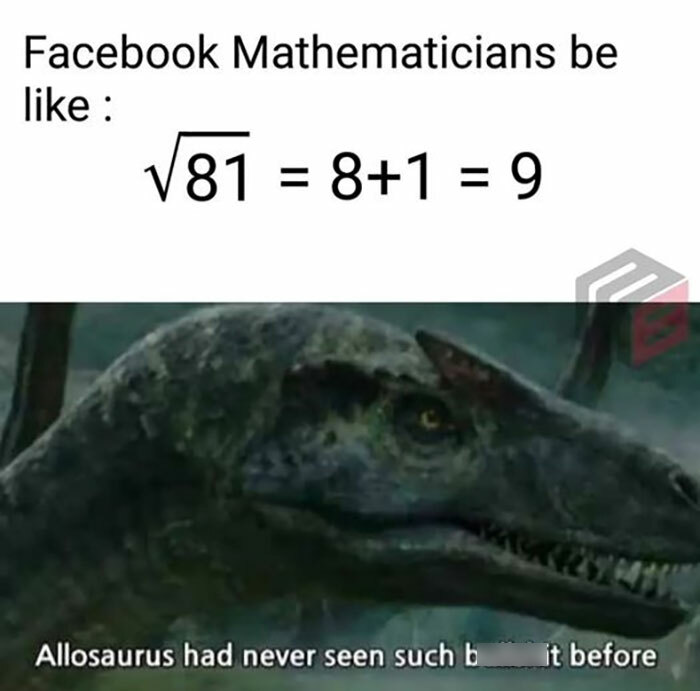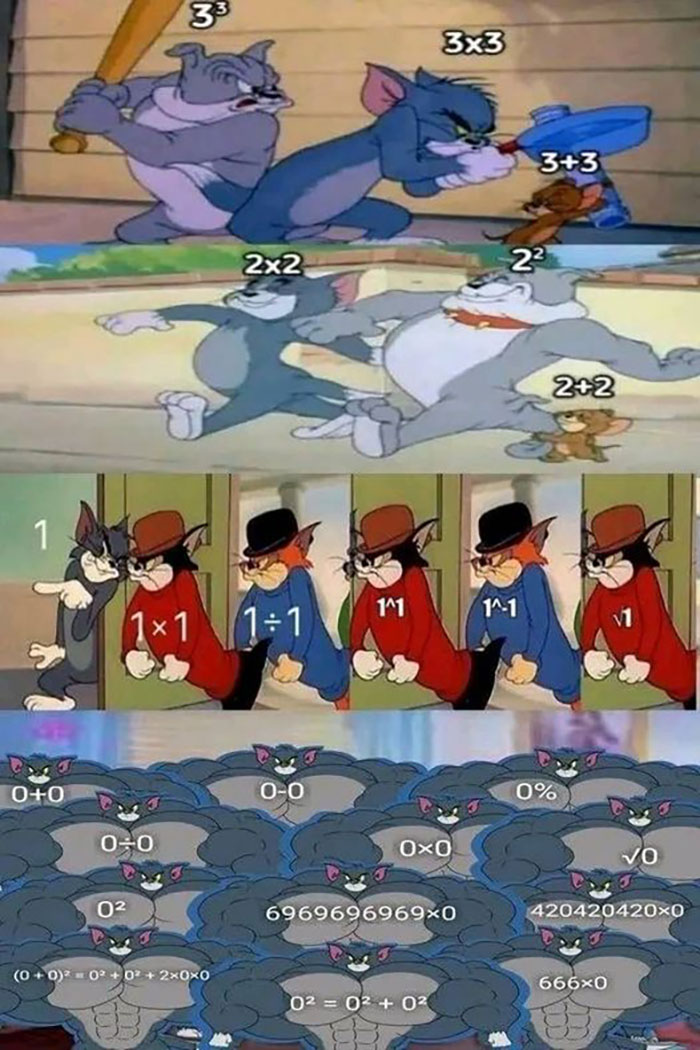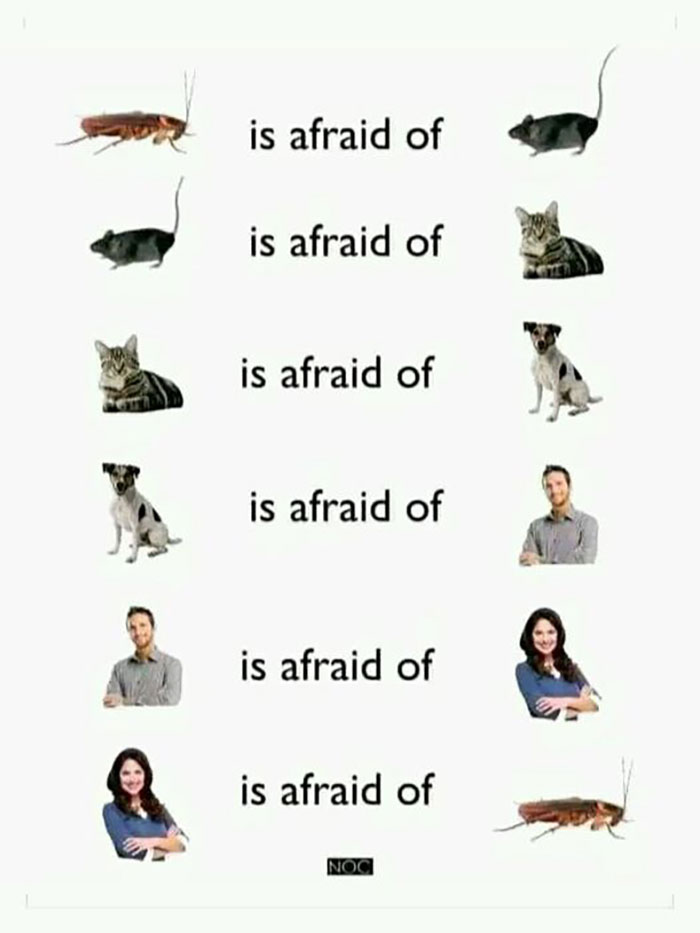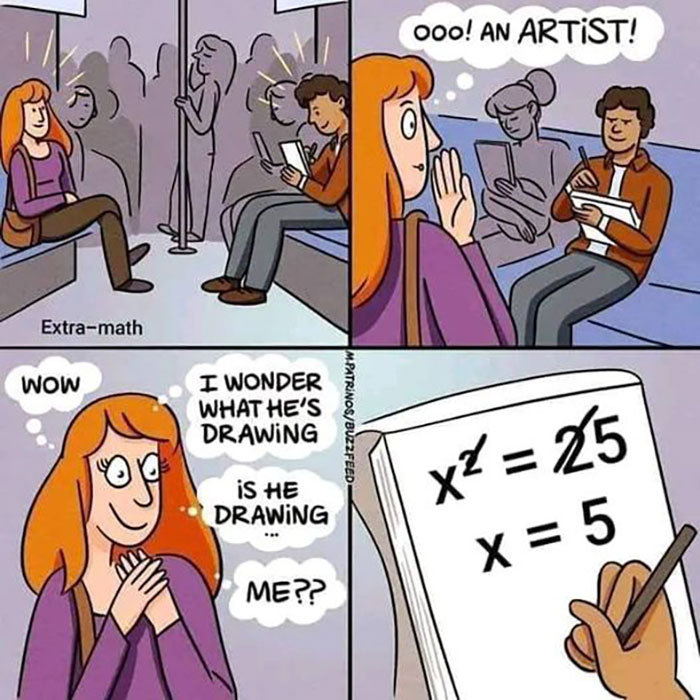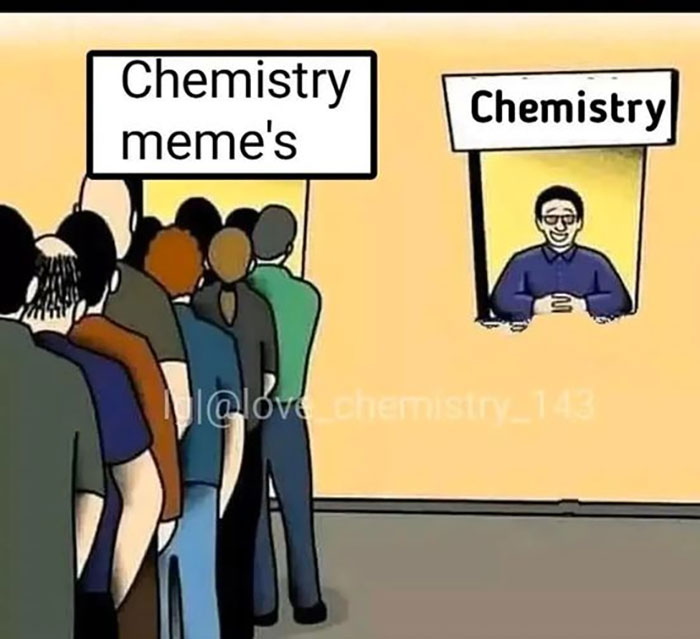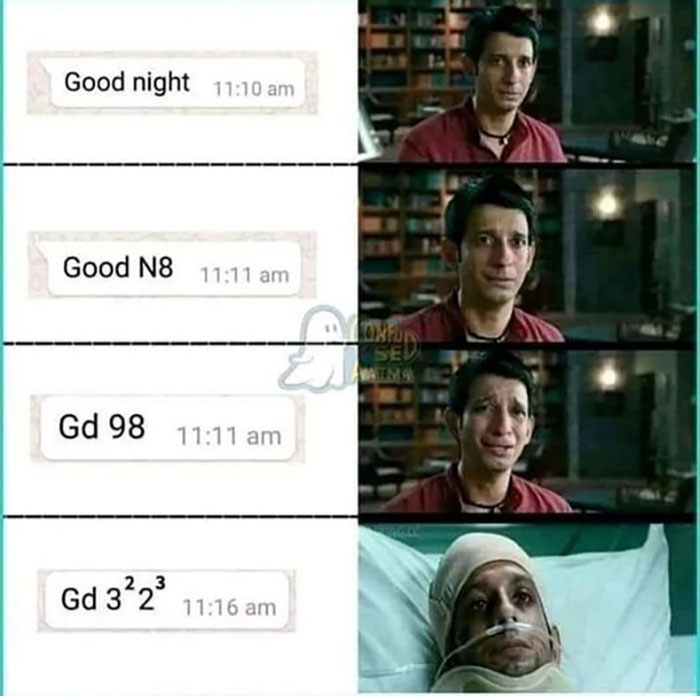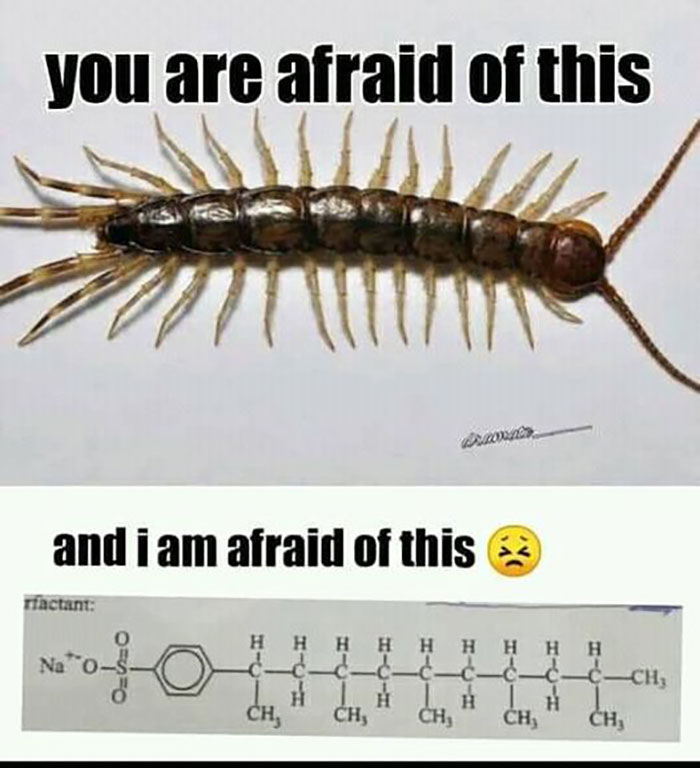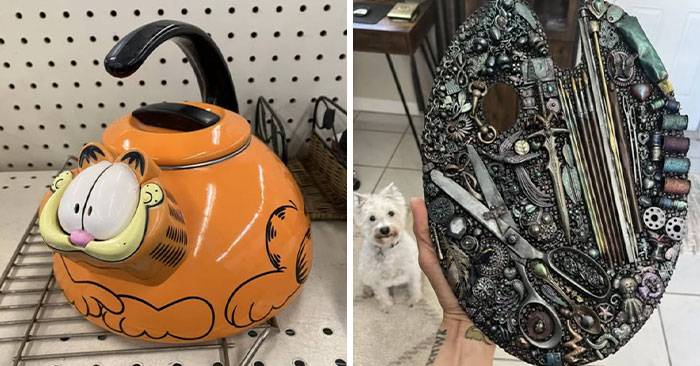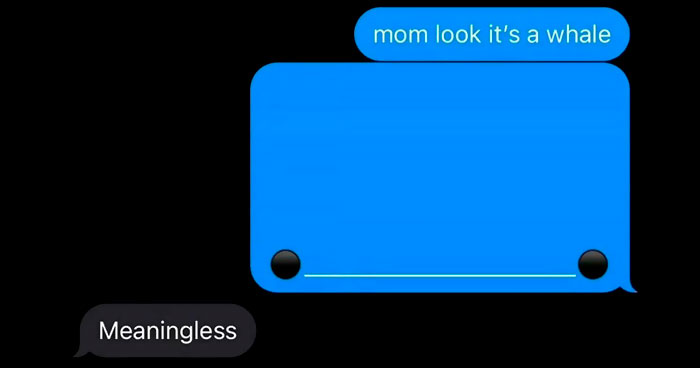Let’s face it, science is a complicated matter. When it comes to subjects like physics, chemistry, or biology, you often feel confused by the mass of the topics. Flipping through textbooks makes the velocity of your thoughts as rapid as light. Hearing terms you can’t even begin to comprehend — you can almost feel the electricity in the air, can't you? Well, fear not! Even if the scientific world can seem like very serious business, there’s plenty of entertainment, too.
If you think science can't be hilarious, then take a look at this 436k-member-strong group over on Facebook. Aptly titled 'Science Memes', this community is dedicated to cheering your inner nerd by sharing jokes that are scientifically proven to leave everyone in stitches.
We at Bored Panda have gone through their feed and gathered some of the most hilarious posts to brighten your day, especially if you’re fluent in geek. So find your lab coat, grab your glasses, and get ready to test your smarts by laughing throughout this list. Be sure to upvote your favorite memes and let us know what you think about them in the comments!
Psst! You can find even more science-related goodness in our earlier posts right here and here.
This post may include affiliate links.
Science and humor go surprisingly well together, and this Facebook group is a perfect example of that. Ever since it was created in January 2020, it has aimed to entertain science lovers with some quality memes and establish a unique community of like-minded people. With thousands of members who eagerly wait for new hilarious jokes to grace their feeds, they have definitely succeeded.
Although, the whole purpose of the group may seem daunting to some. After all, many imagine the scientific world as a bunch of extra-brainy people chaotically writing equations on the whiteboard and shouting "aha!" every now and then. But as you're scrolling through this list, you'll notice that you don’t need a Ph.D. to get the science jokes people share with each other! Although some entries may require a little extra research to get what they mean, you definitely get an A just for effort.
well, the character didn't have a neck to begin with so I think he would have been fine
I love how he pulled a looney tunes and didn't disintegrate til he realized.
This suggests that Vampires weakness to sunlight is purely a placebo effect they give to themselves
Not "all" sunlight frequencies are reflected as some are absorbed. It's those absorbed frequencies that cause damage to vampires. This is why direct sunlight kills but reflected "moonlight" does not.
Yes, but regolith doesn't necessarily reflect all wavelengths, so we can rule out certain "colors" of light as vampire-ineffective.
Please tell me that was a joke. If not you don't seem to understand that the Sun is on the other side of the planet lighting it up, and the Moon along with it.
Load More Replies...According to Chelsea Parlett-Pelleriti, a professor of statistics at Chapman University, blending science with humor and presenting difficult scientific terms in a witty way sparks a desire to learn more. "When I was learning, [making memes] was a good way to digest things," Parlett-Pelleriti said, explaining she started out using humor as a teaching tool for herself. "I tried to make things that I wished that I had as a person learning statistics."
The professor started posting entertaining content on Twitter and TikTok and soon realized that she can share aspects of her highly technical field in a more accessible way, inspiring broader masses to delve deeper into the subject. "The most flattering feedback I've gotten so far is that people will say, 'my goal in life is to learn enough statistics to understand this TikTok or to understand this meme. To me, that says that I'm doing something that allows them to still feel included in the community," Parlett-Pelleriti added.
In a 2020 study, Dr. Sara Yeo, an associate professor in the Department of Communication at the University of Utah found that lighthearted humor can be a useful strategy for scientists to engage audiences in topics they may know little or nothing about. "Laughter works," she told SciCommBites. "If we find something funny, we find it more engaging. If we find a scientist funny, we find them to be more likable."
In the study, researchers randomly appointed students to watch two different versions of one clip. The video was of a physicist doing stand-up comedy and telling benign science jokes that don’t have any target at all. "We either had the laughter embedded in the video or removed the laughter," Dr. Yeo explained. "[Students] were randomly assigned to a laughter condition or a no-laughter condition. So laughter is a social cue — when we hear laughter around us, we think that something is funny. This is why sitcoms, for example, have piped in laughter, it's to indicate a joke to us."
(whispers) What about pi radians rather than pi degrees? (/whispers)
"Sure enough, respondents who saw the video that had laughter thought the video was funnier." The professor added that this increased the amount of amusement participants felt from it. They then continued to ask students a series of questions: "Do you like this scientist? Do you think that the scientist is an expert? Do you think they are credible? And in all cases, the sort of more laughter or more mirth, more experienced humor is associated with higher perceptions of credibility, higher perceptions of likability," she said, adding that the main idea is that laughter can humanize you.
So is there a better way to add some zing to your studies than creating a few funny memes about it? Well, it definitely makes it more entertaining. Memes can be used in a variety of ways, after all, and they always grab our attention due to their contagious nature. As Bradley E. Wiggins, Ph.D., author of The Discursive Power of Memes in Digital Culture and department head of Media Communications at Webster Vienna Private University, told us in a previous interview, these humorous images have been a part of digital culture for nearly 20 or more years now, and they are becoming more and more popular.
"The difference in awareness is due to the proliferation of a massive amount of content created, consumed and shared widely nearly all the time especially since cellular networks have increased the capacity for bandwidth," he told Bored Panda. "Their apparent increase in popularity stems from the truncated form of communication they allow. In other words, memes help you to keep it simple and short, but not without a possibly huge impact in terms of humor, but most interestingly because of resonance with an issue, a person or group, etc. at a given point in time," Wiggins added.
Whether it’s a way to share easily digestible information with the world or something that helps us unwind from our everyday troubles, the list of why memes are so appealing to us is seemingly never-ending. "Within an image and possibly also text on the image, it becomes possible to recontextualize the image, the moment, the event, etc.," Wiggins said, adding that memes become something we can digitally handle and transfer to others.
"It's ultimately an aspect of social ties to one another deteriorating over time causing the need for connecting with others to take the form of sharing memes, at least in one way of seeing this overall picture," the professor noted.
When it comes to science and using memes as a tool for teaching, the professor advised you to proceed with caution since there’s a fine line between truth and fiction. Wiggins stated that "with the preponderance of fake news but also the inability of people to 'trust' facts," he would be quite skeptical of the current political atmosphere to use memes as a way to learn new subjects and better understand the world around us.
"However, in terms of using memes in the classroom to make a point about something, say, for example, how certain social movements communicate their identity, then absolutely," he concluded.
Gold, an even better conductor than copper. And Uranium does not produce clean energy. It does produce energy, but U-238 has a half life of 4 and a half billion years.
Like the joke from Deadpool. Doctor tells his patient "I'm sorry, but your tests are back and it is a terminal illness." Patient "How much time do I have left, Doc?" Doctor"5" Patient "5 what? Days? Weeks? Months?" Doc "4.....3....2....."
plagiarism is copy/paste without "quotemarks" and (parentheses). Add those and it's "research". (Smith, J. 1985. p123)
I remember back a school some people couldn't grasp the fact the X, Y, or Z could have different values in different problems.
This would do well in the "malicious compliance" section, not the "give someone a brain" section.
Sarah Edwards please advertise somewhere where you might get more business and less down votes. I don't have bad intentions but if you irritate people you drive them away instead of drawing them in. Find a forum better suited to your needs for advertising. Good luck.
You can click on a link below the last one "Note: this post originally had...." to see the rest. Not sure why they crop the list after a few hours.
Load More Replies...Sarah Edwards please advertise somewhere where you might get more business and less down votes. I don't have bad intentions but if you irritate people you drive them away instead of drawing them in. Find a forum better suited to your needs for advertising. Good luck.
You can click on a link below the last one "Note: this post originally had...." to see the rest. Not sure why they crop the list after a few hours.
Load More Replies...
 Dark Mode
Dark Mode 

 No fees, cancel anytime
No fees, cancel anytime 


